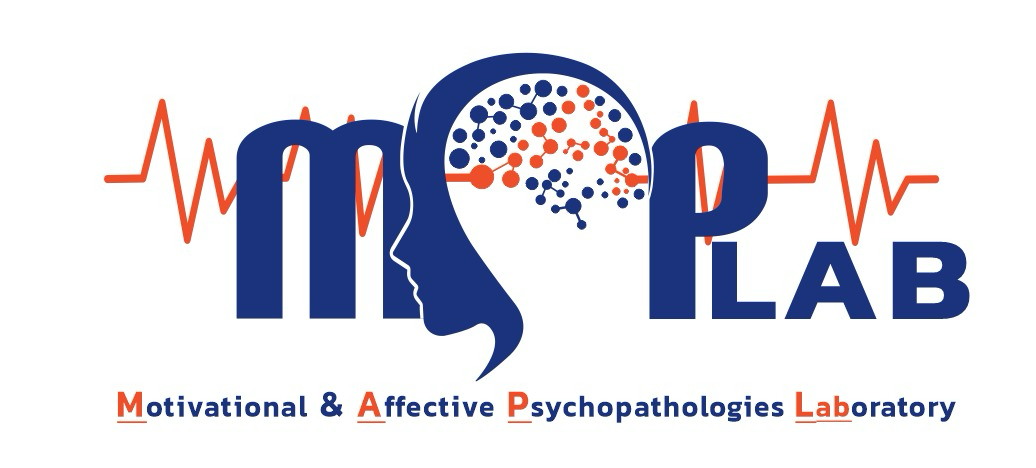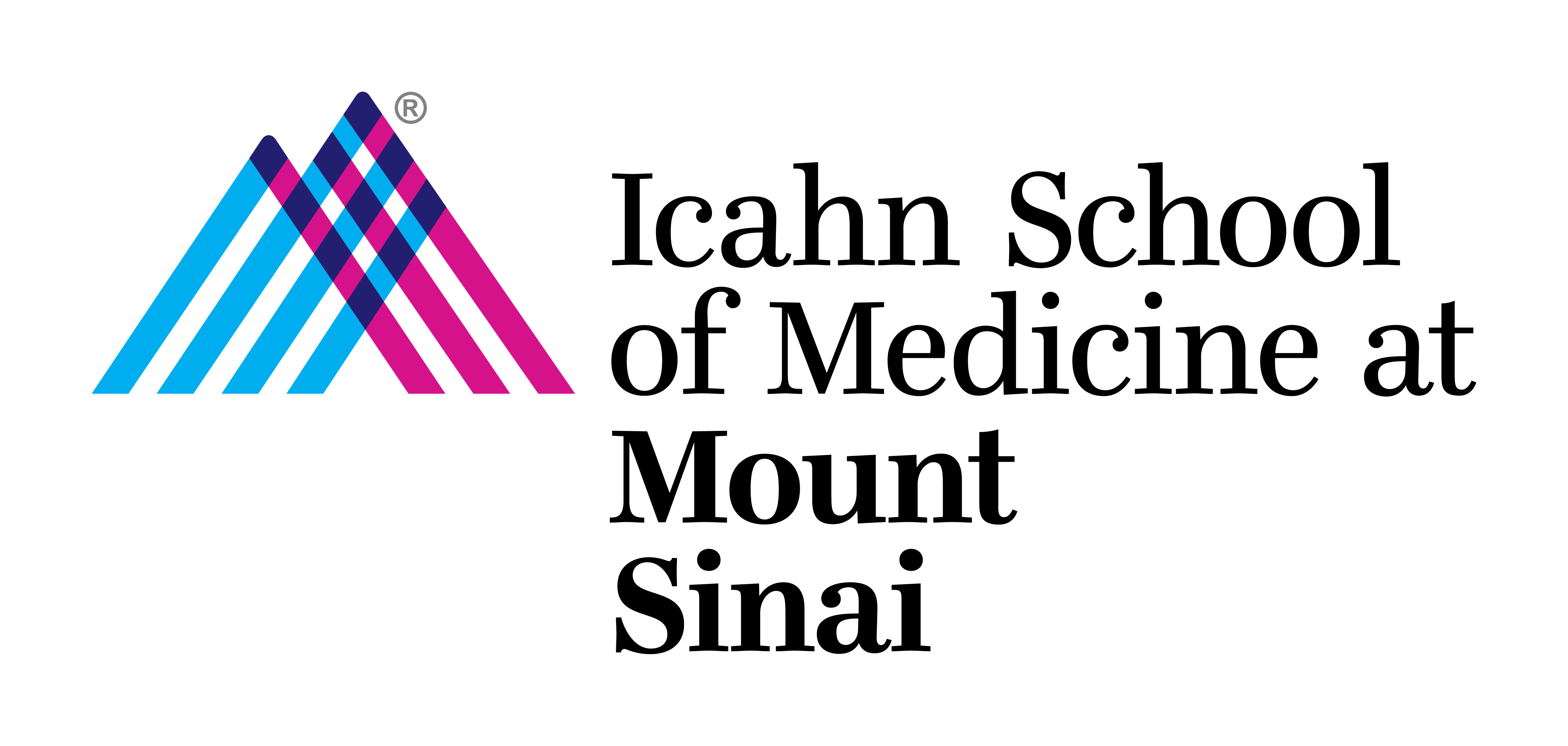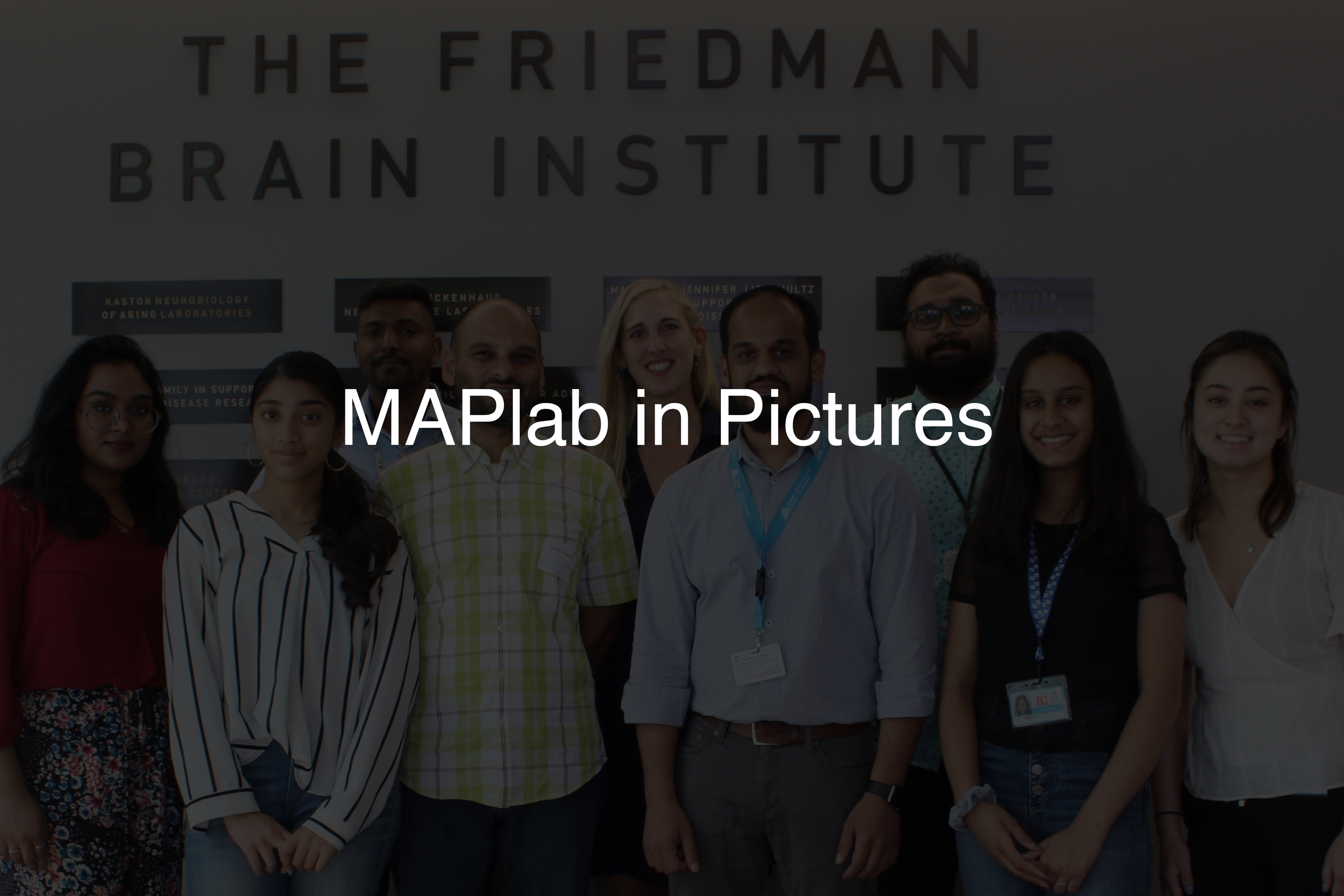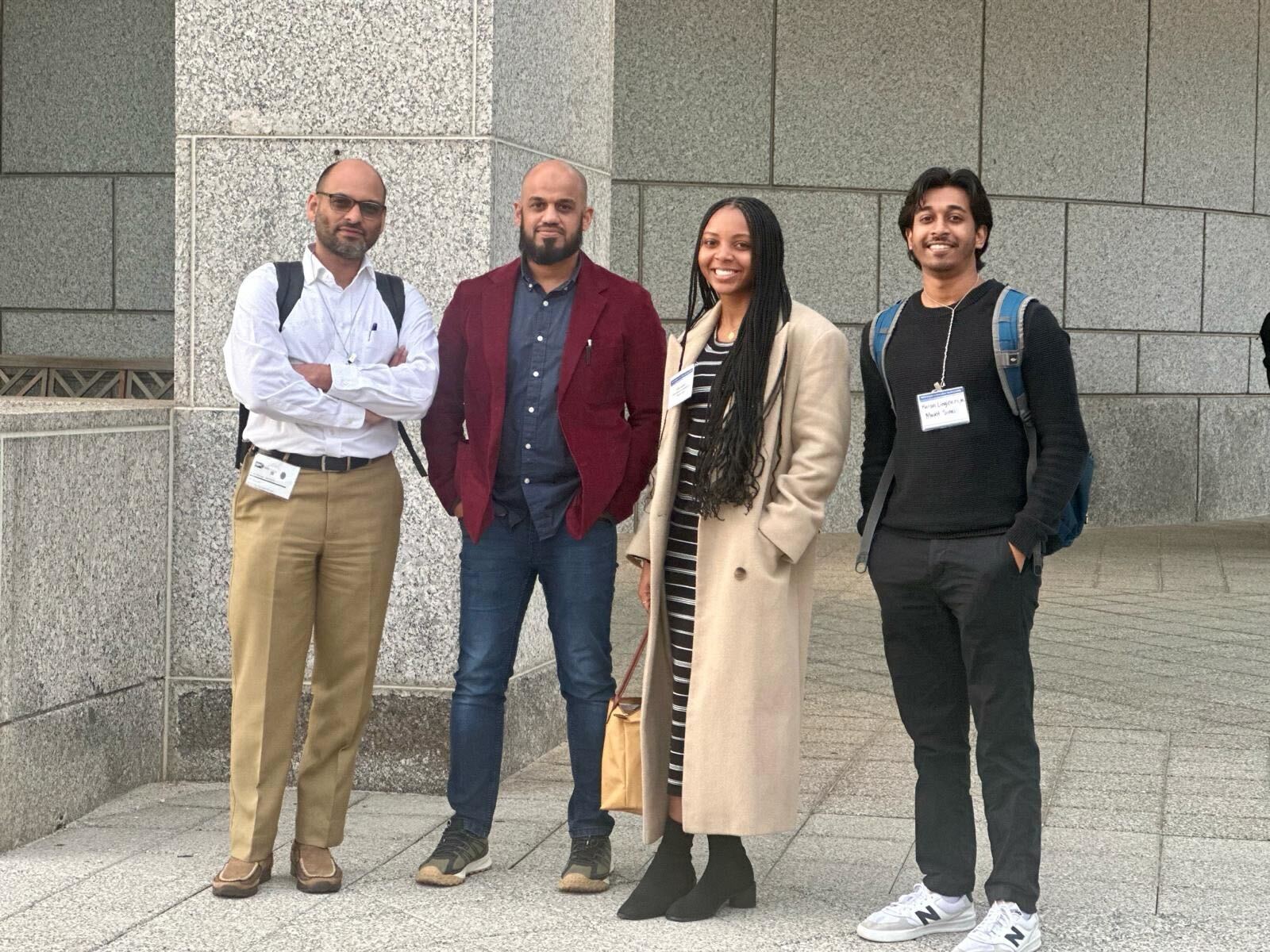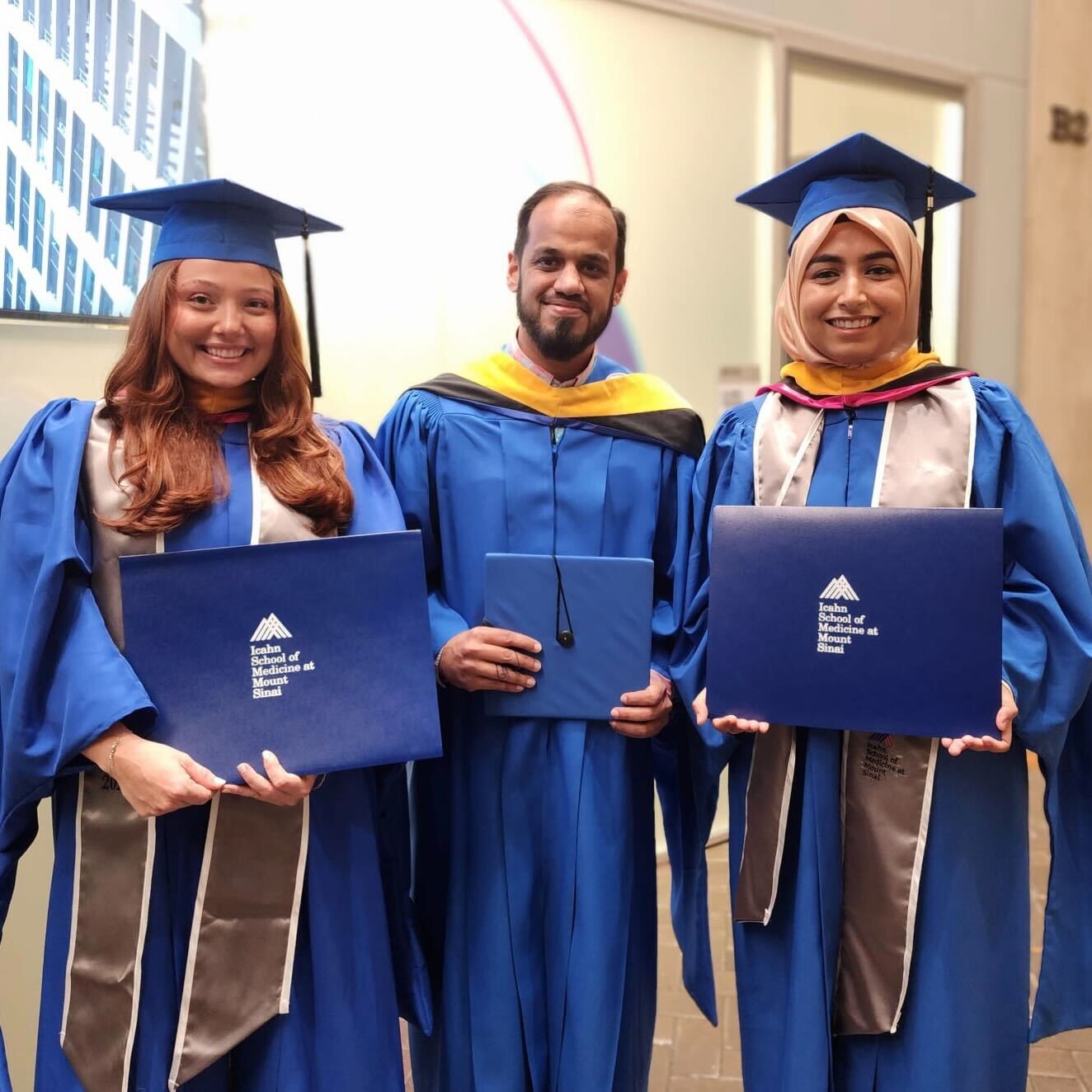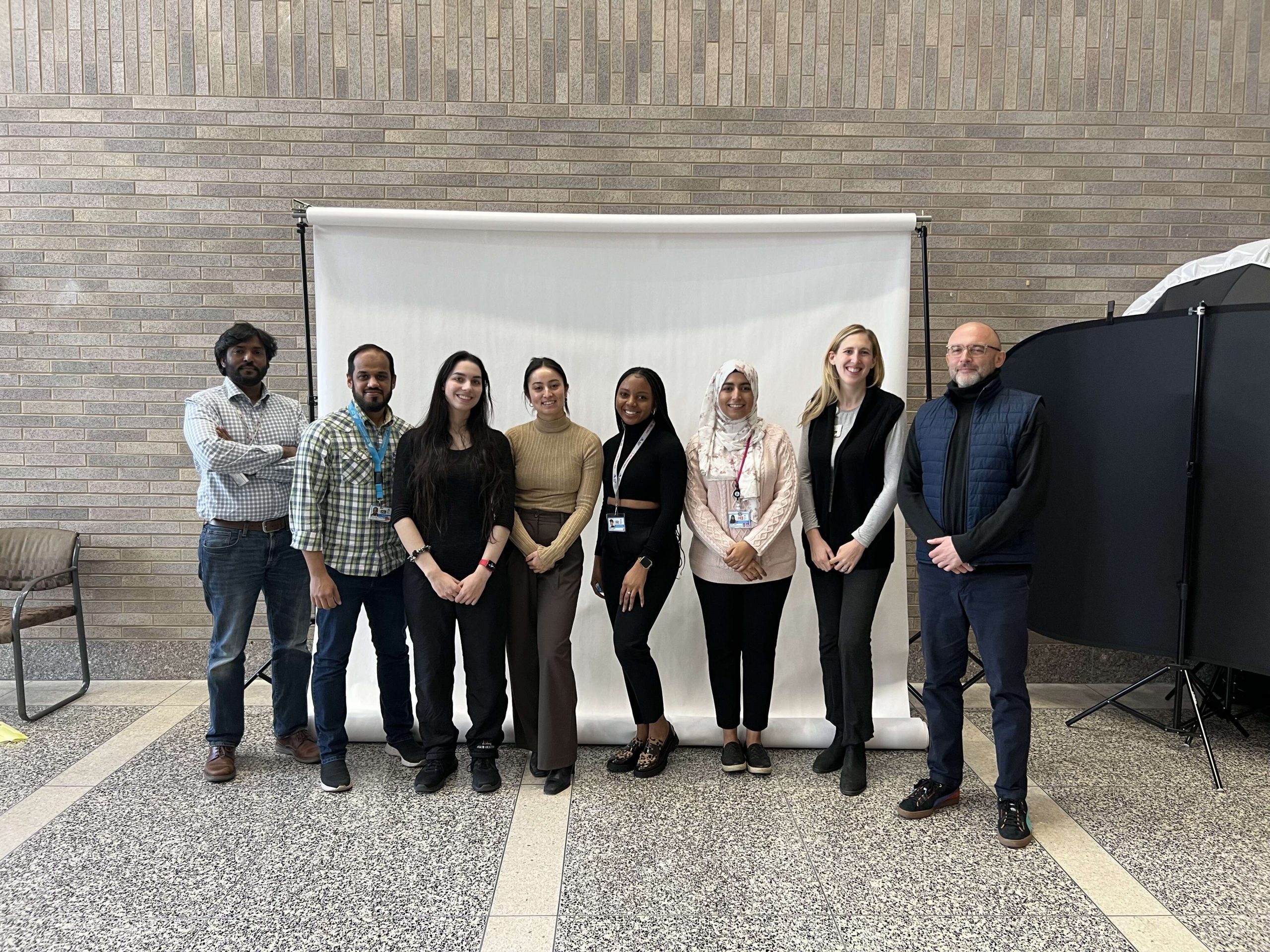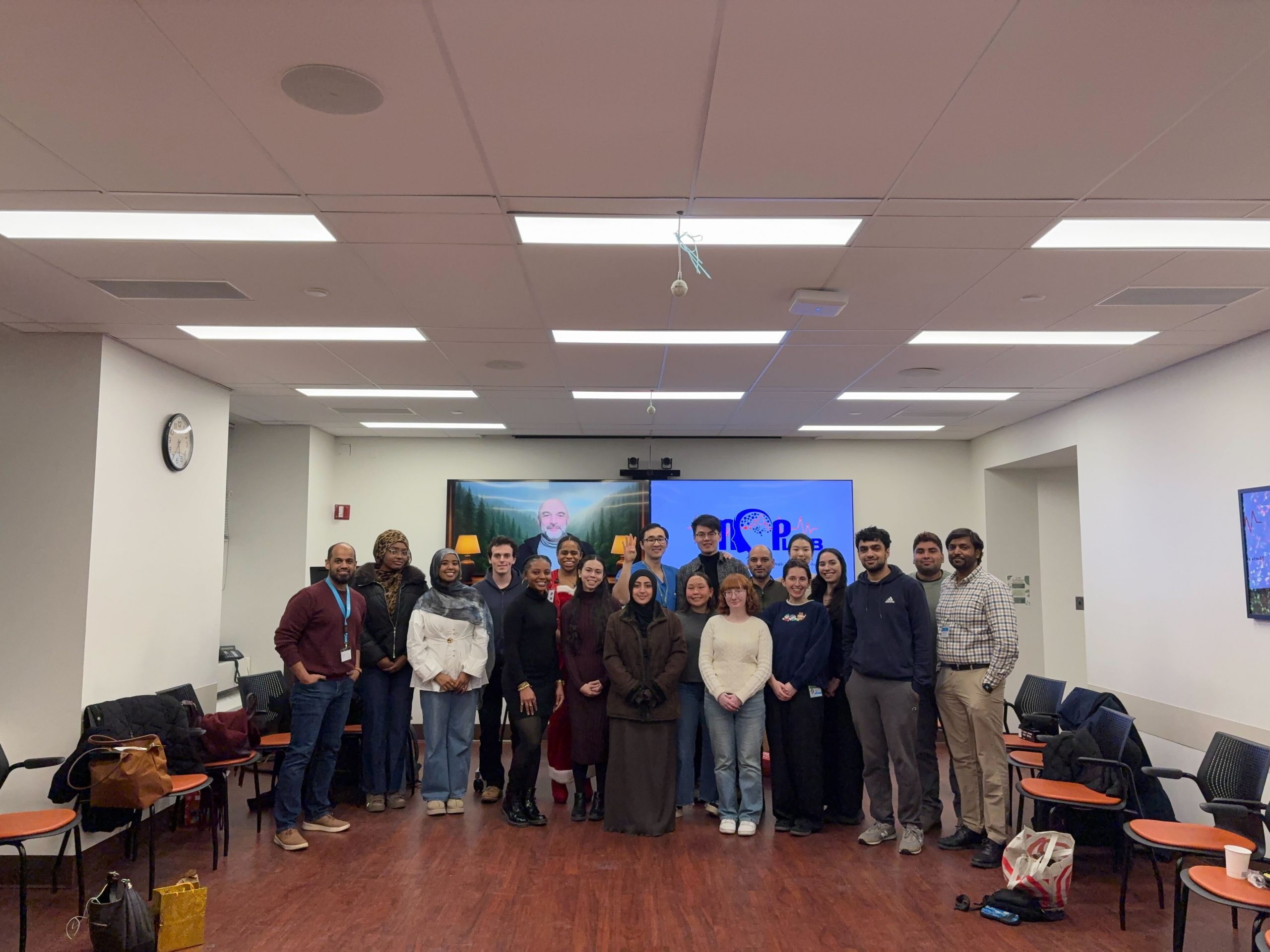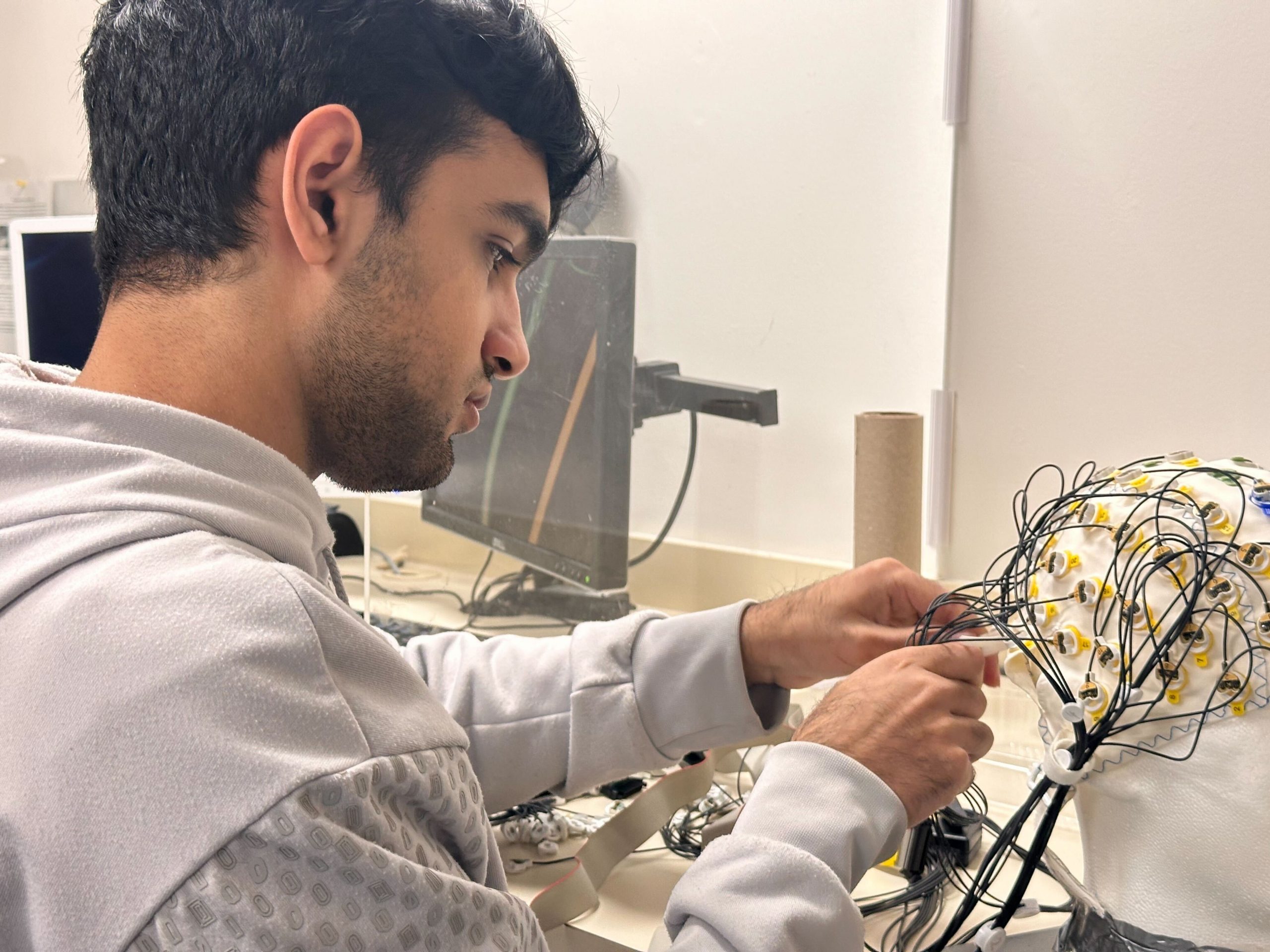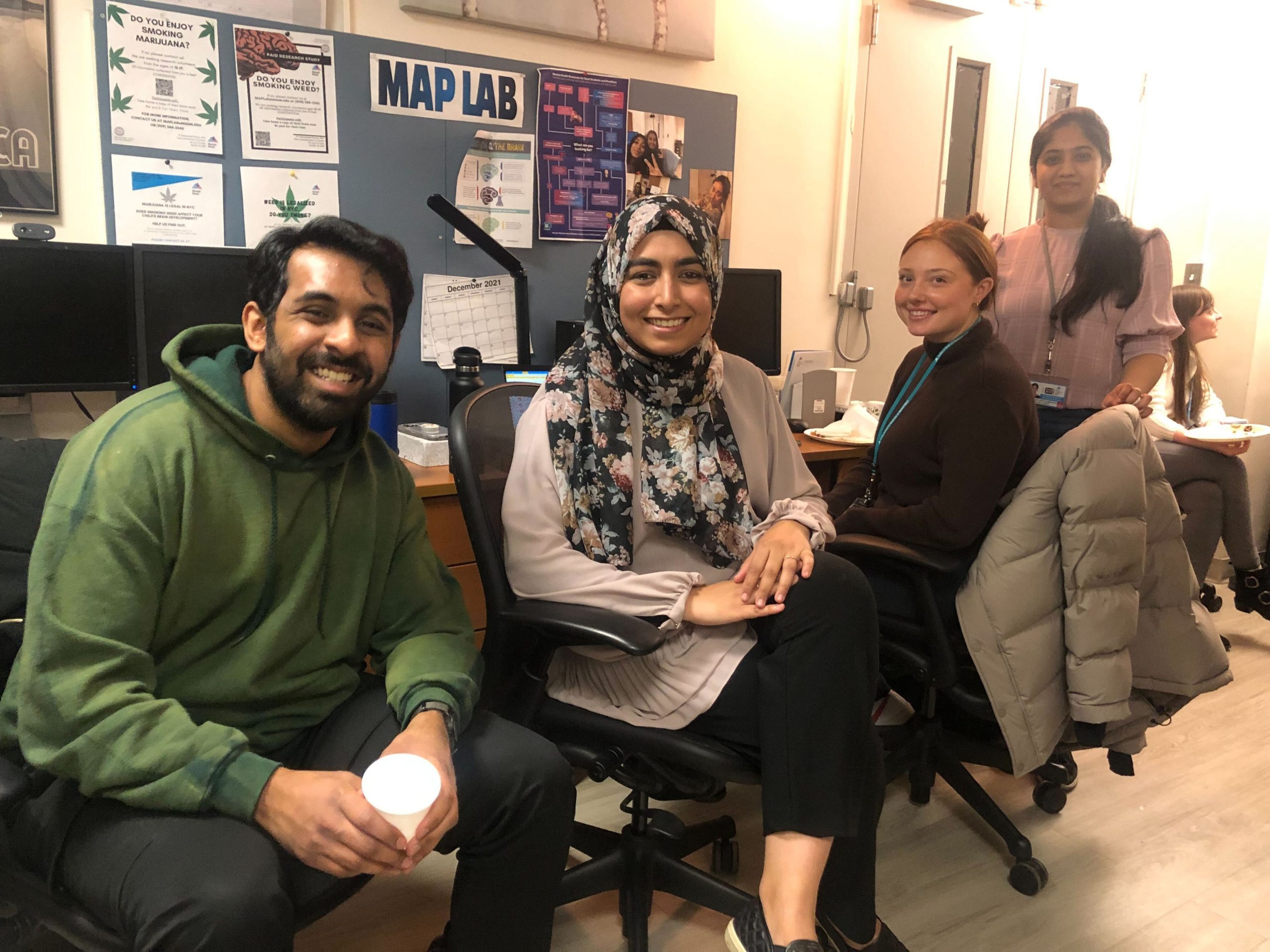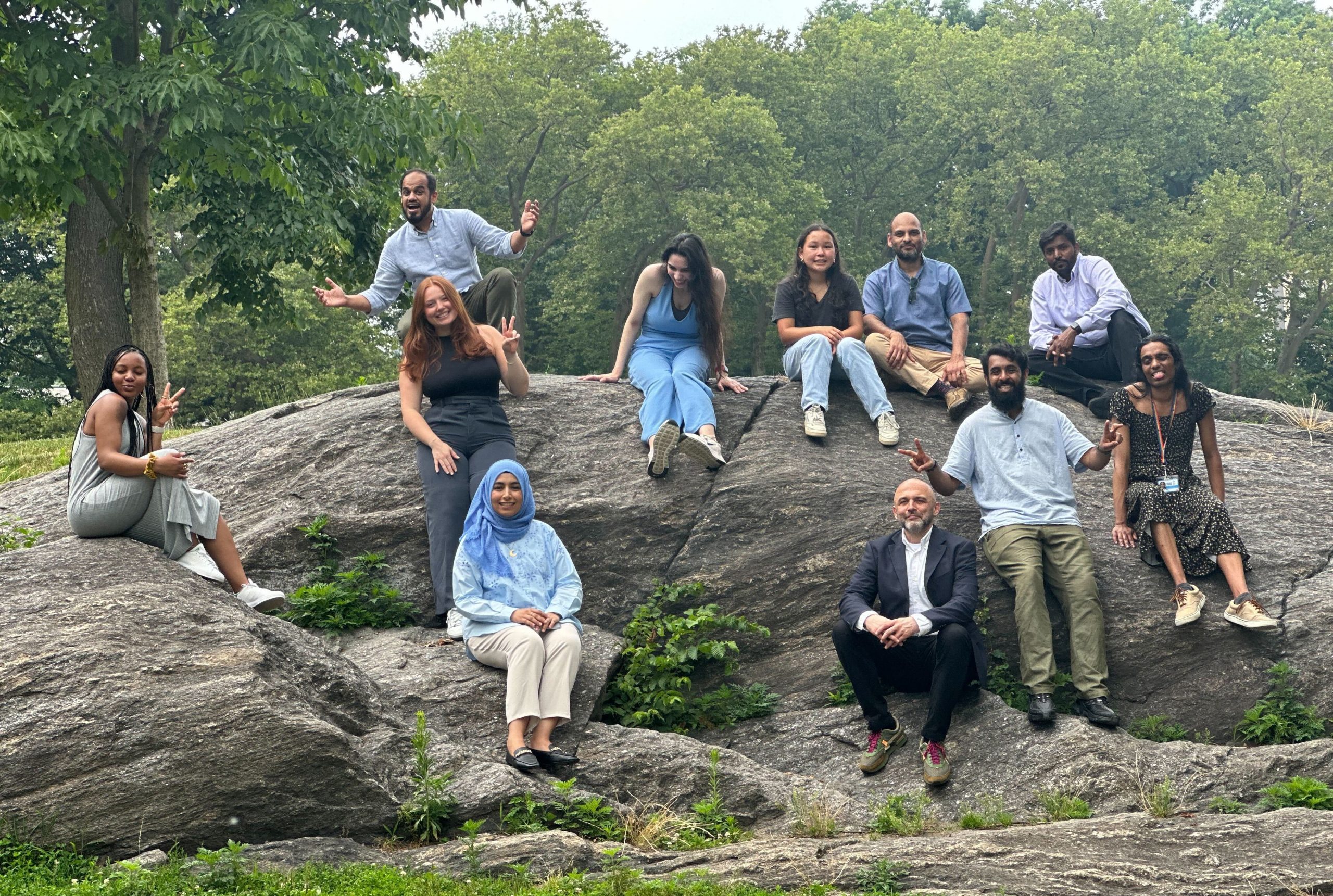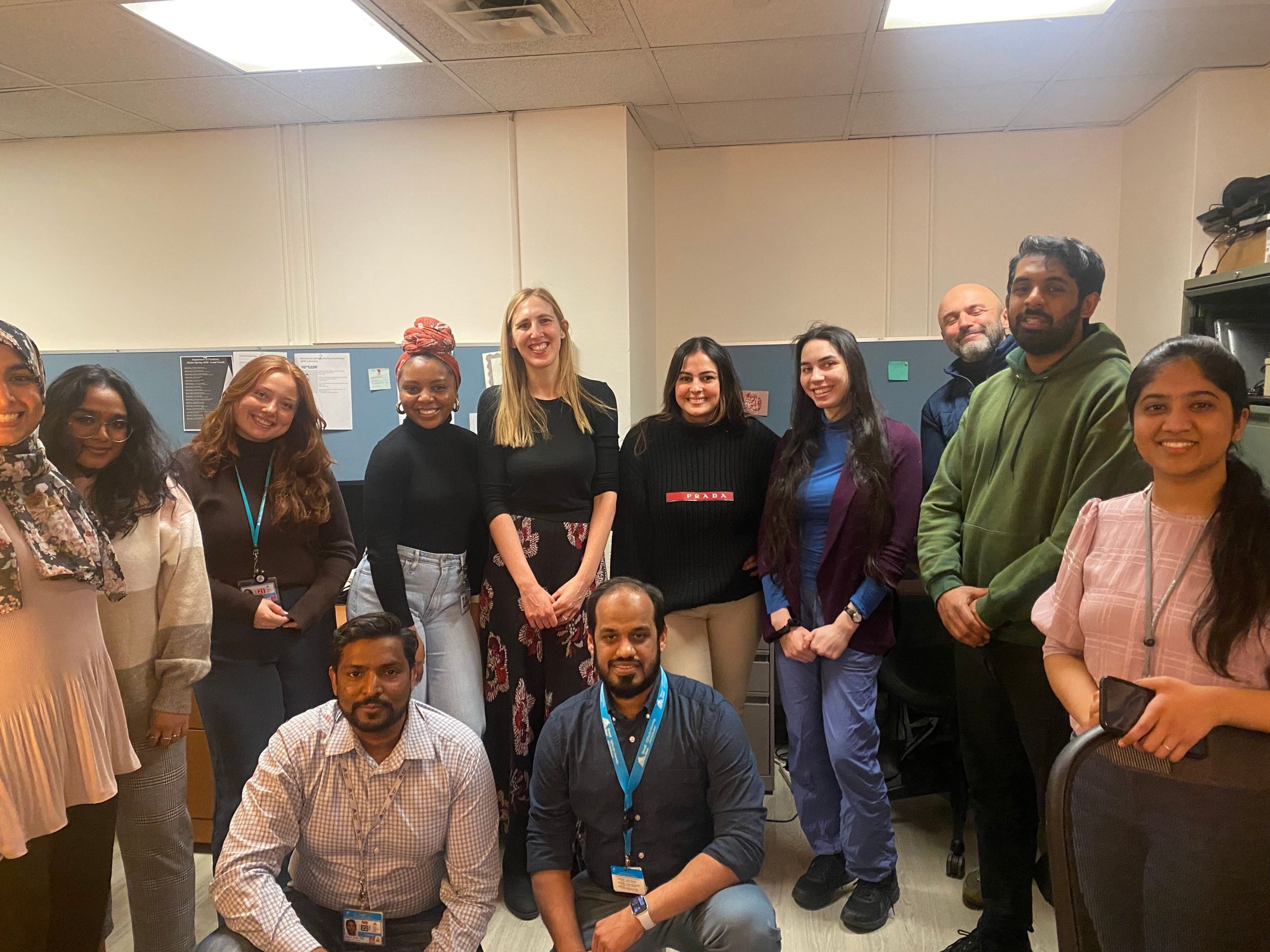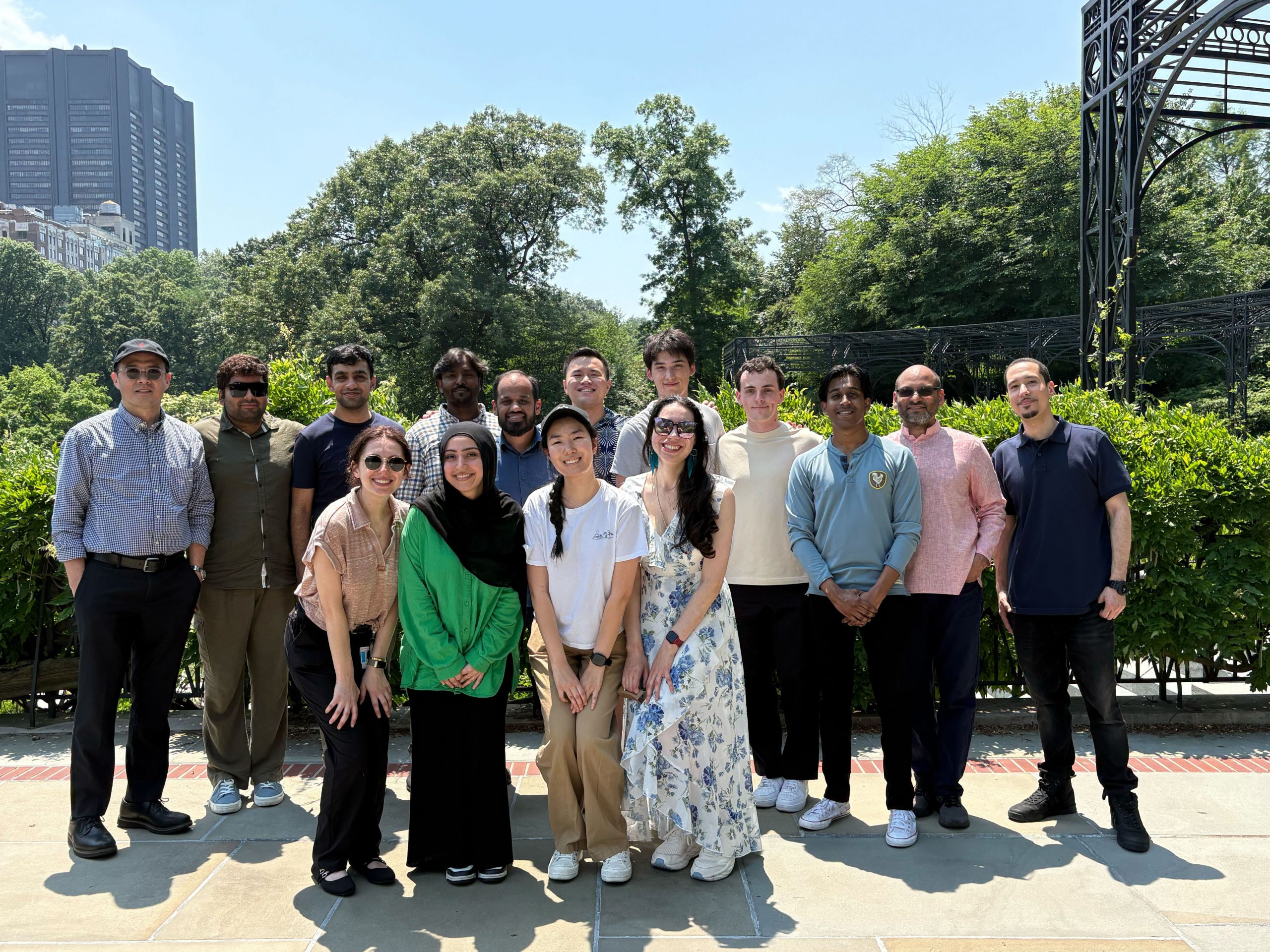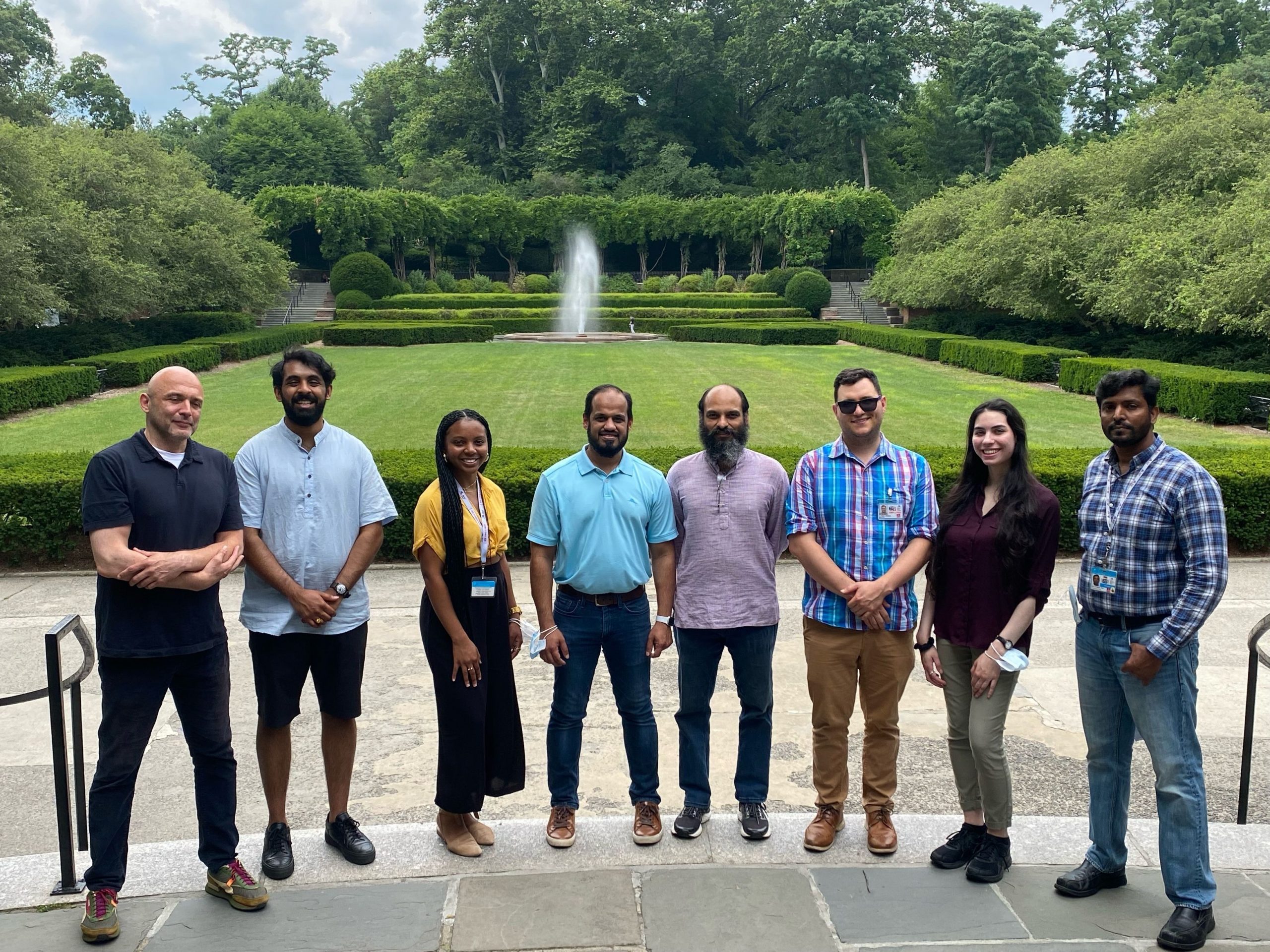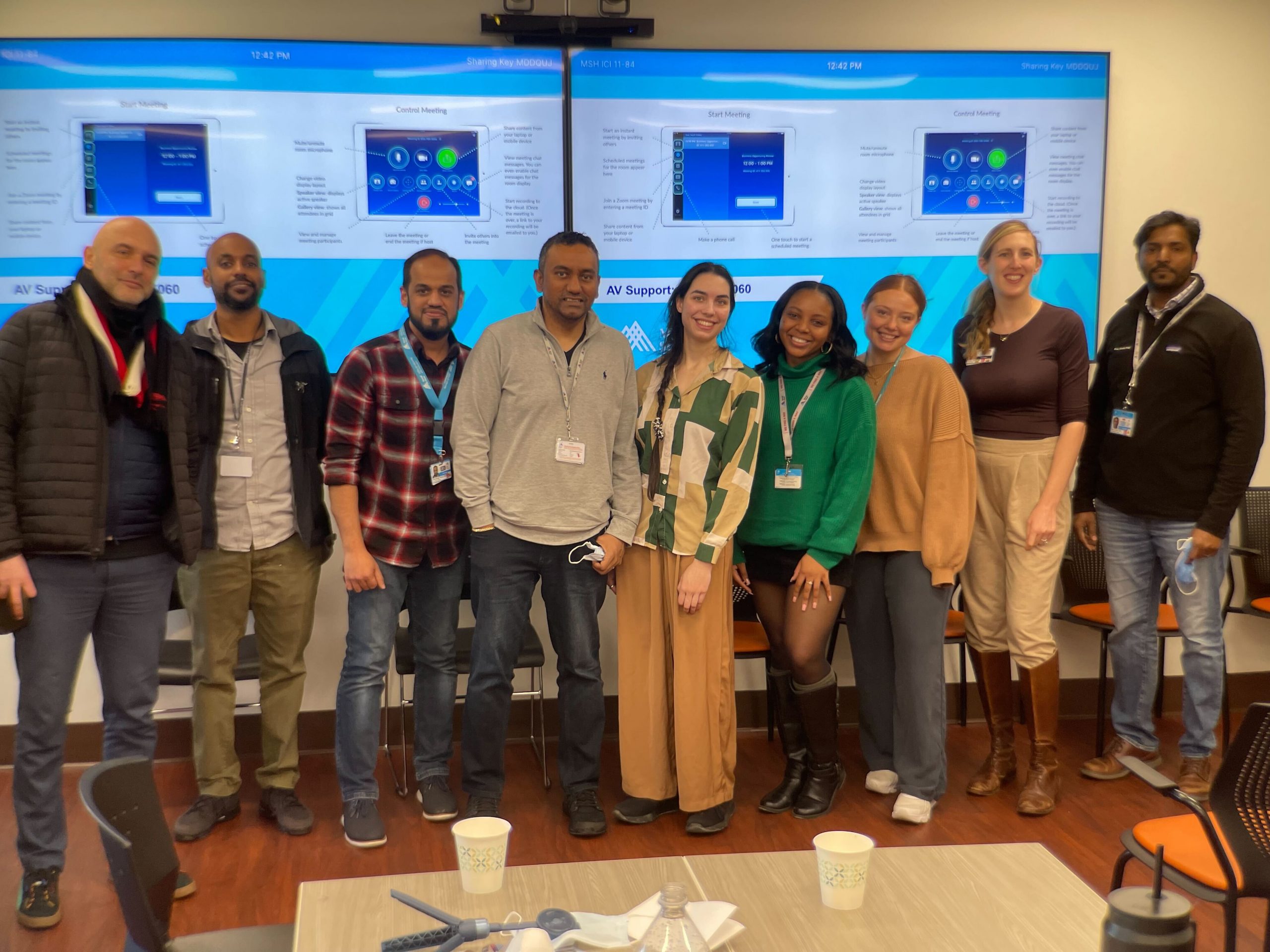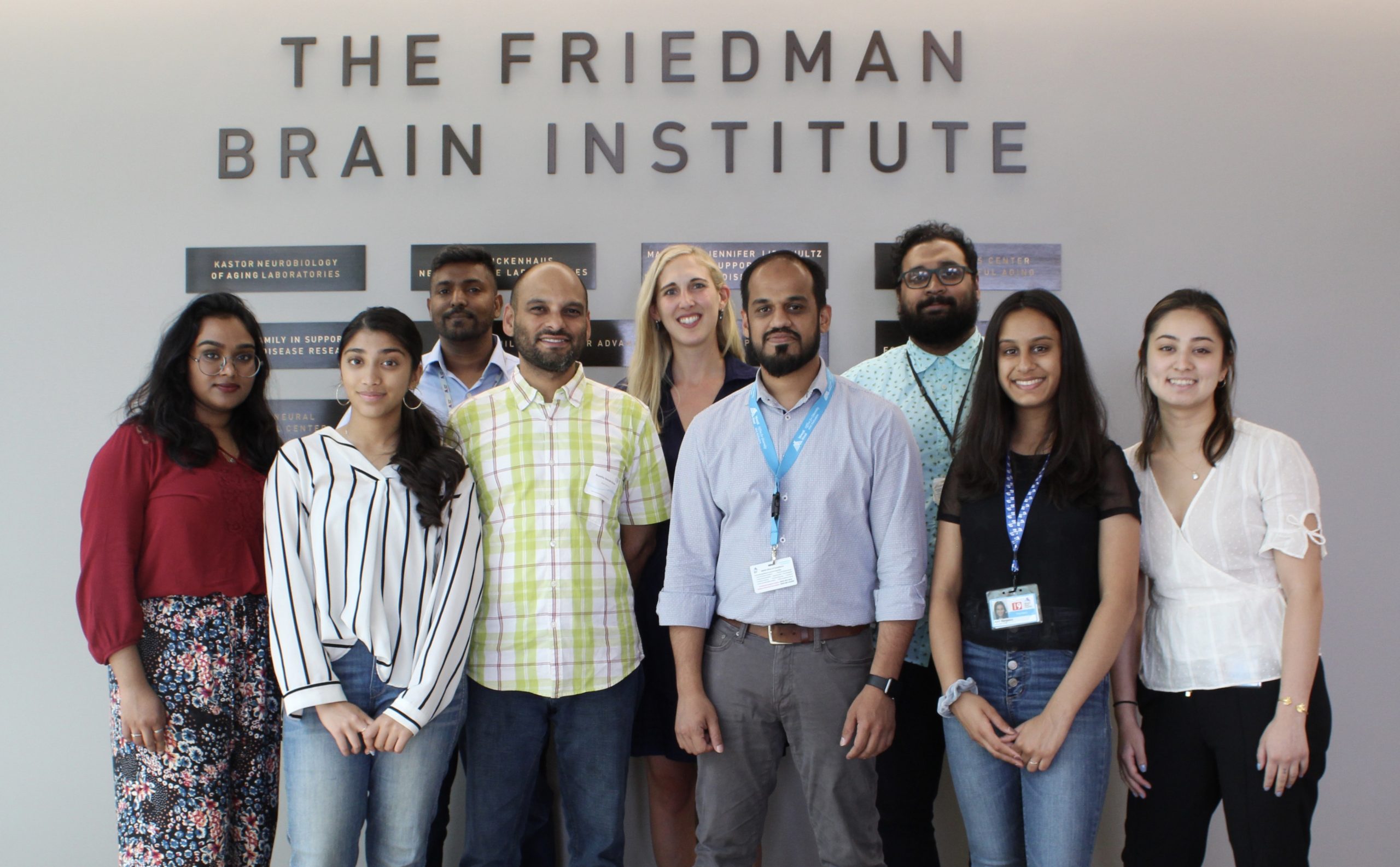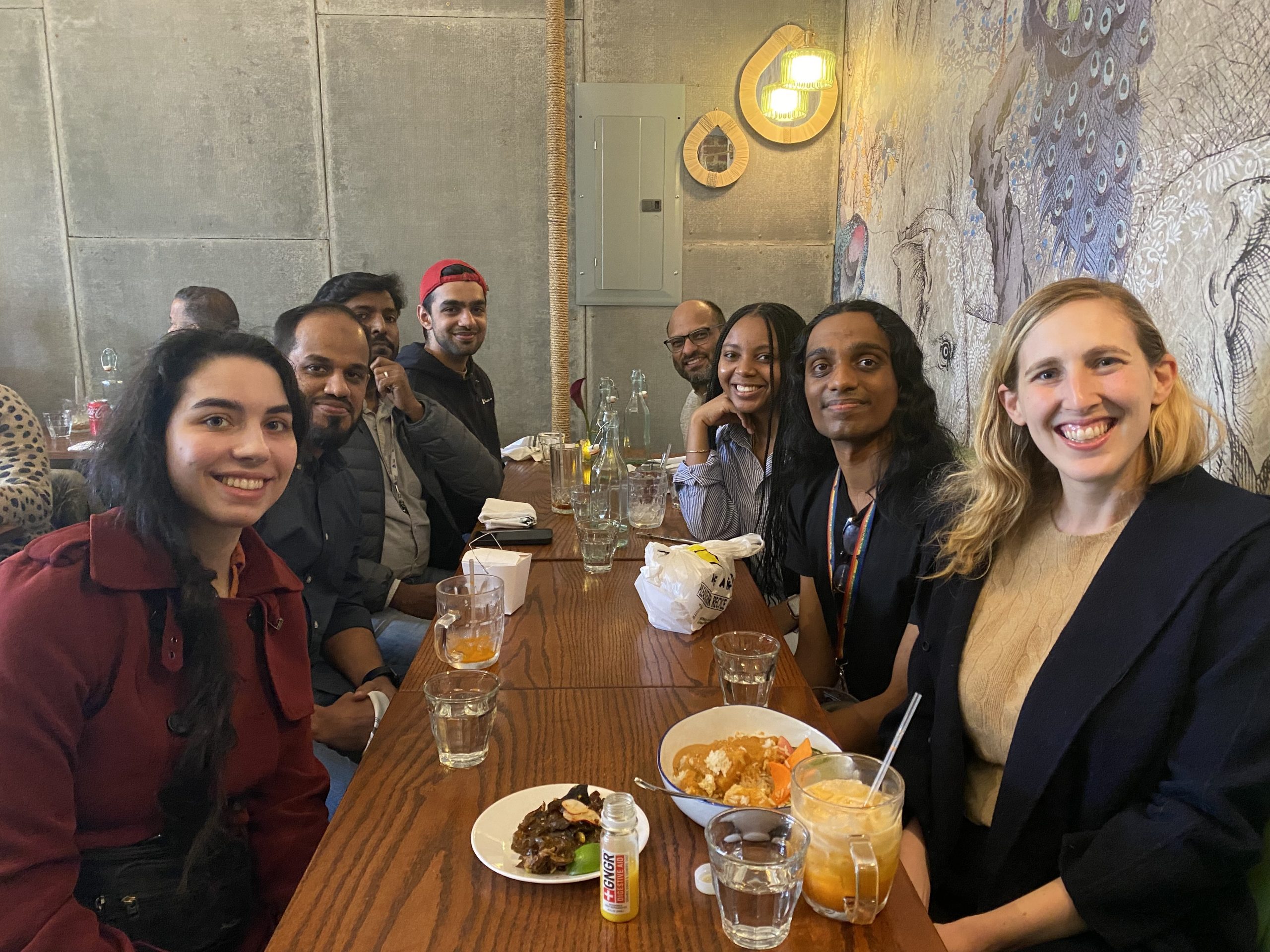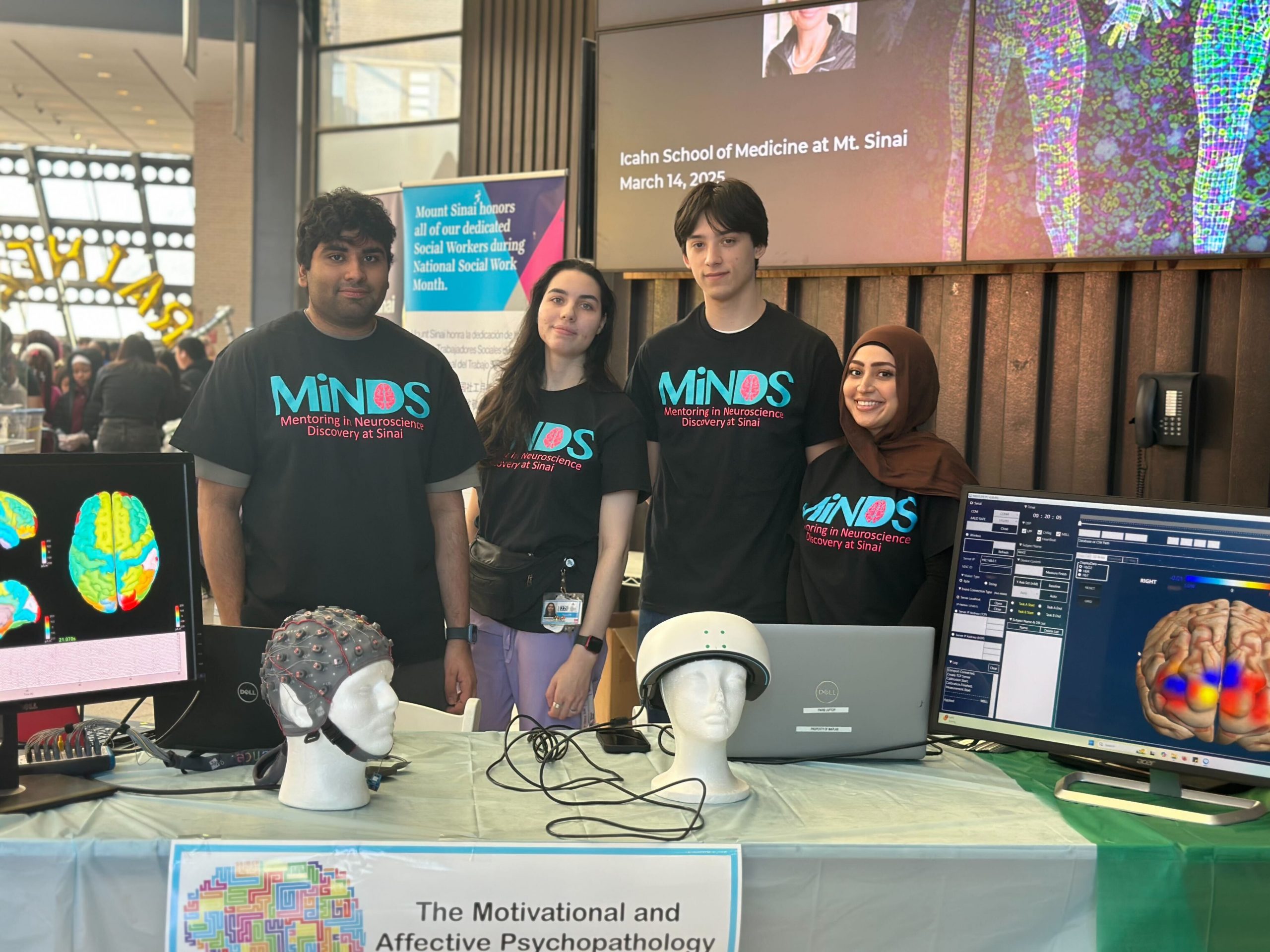Motivational and Affective Psychopathology (MAP) Laboratory
The Motivational and Affective Psychopathology (MAP) lab focuses on studying cognitive-affective interactions underlying deficits in motivation, reinforcement learning and inhibitory control in mental health disorders, specifically in substance use disorders, using behavioral, computational and neuroimaging techniques. The goal is to identify neurodevelopmental trajectories of these brain functions that underpin the onset of substance use disorders, changes therein during the chronic substance use and disease maintenance and neuroplasticity during treatment and abstinence from substance use. We place special emphasis on understanding these mechanisms during each phase of the disease with an eye towards developing clinically useful biomarkers for accelerated bench-to-bedside translation. MAPlab employs a comprehensive multimodal approach, leveraging environmental (e.g. socio-economic), clinical (e.g., psychiatric interviews and ratings), behavioral (e.g., cognitive tasks), molecular (e.g., central and peripheral inflammation), physiological (e.g. EEG, eye-tracking) and circuit-level (task and resting fMRI) correlates of the disease at each stage, to better differentiate disease-related neurobiological changes from predispositions, as well as to identify targets for intervention and biomarkers to determine outcomes.
Muhammad Parvaz is an Associate Professor in the Department of Psychiatry, Artificial Intelligence and Human Health, and Neuroscience at Icahn School of Medicine at Mount Sinai and the Director of the Motivational and Affective Psychopathologies (MAP) lab. He received his PhD in Biomedical Engineering from Stony Brook University under the mentorship of Dr. Rita Goldstein and subsequently completed a NIDA-funded Postdoctoral Fellowship at Brookhaven National Laboratory and at Icahn School of Medicine. His primary research interests include the cognitive-affective interaction underlying deficits in motivation, reinforcement learning and inhibitory control in mental health disorders, specifically in substance use disorders, using behavioral, computational, and neuroimaging techniques. As a cognitive neuroscientist with a background in biomedical engineering, he places special emphasis on understanding disease mechanisms with an eye toward developing clinically useful biomarkers for accelerated bench to bedside translation. Currently, his research involves tracking drug cue-reactivity using neuroimaging markers and understanding the mechanisms that underpin its culmination to this complex cognitive-affective state that we call craving. At the clinical translation side of this work, he is developing and testing interventions for craving self-regulation based on real time EEG-based brain computer interface techniques. He is also interested in studying the onset and development of aberrant cognitive-affective interaction in adolescents as well as risk factors that render some youth vulnerable to develop psychopathological phenotypes.
Muhammad is also a Muslim Chaplain with the New York City Chaplaincy Task Force and provides spiritual care and comfort to those in need. Muhammad loves spending time with his beautiful wife and three amazing kids, watching sports and doing work around the house.

Contact Us
Office
Muhammad A. Parvaz, PhD
19 East 98th Street
5th floor, Suite 5F
New York, NY 10029
Phone: 212-241-3638
Email: Muhammad.Parvaz@mssm.edu
Lab
Motivational and Affective Psychopathologies Lab
1255 Fifth Avenue New York, NY 10029
Phone: 909-566-2345
Email: MAPlab@mssm.edu
Meet the Team

Riaz Shaik | Associate Scientist
Dr. Shaik is a clinical scientist with medical training from India, and a PhD in Bioinformatics from Rutgers University. He currently works as an Associate Scientist in the Motivational and Affective Psychopathologies (MAP) Lab, focusing on the identification of predictive biomarkers for the onset of substance use and psychotic symptoms, using EEG/ERP techniques. His research sits at the intersection of neurobiology, psychiatry, and computational science, with the goal of translating laboratory discoveries into practical tools for preventive psychiatry and clinical care. He is also overseeing all data acquisition in MAPlab, and providing training and mentorship to junior colleagues. Outside of his research, Dr. Shaik hikes and enjoys capturing nature’s beauty through photography—though his photos are often accompanied by a lighthearted disclaimer about their “rustic” quality. He also has a strong passion for languages and linguistics, delighting in exploring the structure and intricacies of different languages. This curiosity extends to his love for cultural cuisines, as he enjoys trying new foods and discovering the rich traditions behind them.
Email: riaz.shaik@mssm.edu

Tarik Bel-Bahar | Associate Scientist
Dr. Tarik Bel-Bahar is an experimental psychologist specializing in brain dynamics related to cognitive, affective, and motivational processing in substance use disorder and treatment. He earned his doctorate from the University of Oregon and has held postdoctoral roles at the University of California San Diego, Duke University, and the University of Michigan. Dr. Bel-Bahar’s work revolves around electroencephalography (EEG) with an emphasis on cognitive performance, emotional regulation, and altered states of consciousness. His current research investigates EEG-based predictive metrics in substance use disorder treatment, with a focus on neural oscillations, intrinsic brain networks, and reproducible analytic methods. Outside of his professional work, he enjoys yoga and music.
Email: tarik.bel-bahar@mssm.edu
Publications:
Bel-Bahar, T., Khan, A., Shaik, R., Parvaz, M.A. (2022, under review). A scoping review of
electroencephalographic (EEG) markers for tracking neurophysiological changes and predicting
outcomes in substance use disorder treatment. Frontiers in Neuroscience, special issue on EEG and
Addiction Science
Desatnik, A., Bel-Bahar, T., Taylor, L., Nolte, T., Crowley, M. J., Fonagy, P., & Fearon, P. (2021). Emotion
regulation in adolescents: Influences of internal representations of relationships–An ERP study.
International Journal of Psychophysiology, 160, 1-9.
Jończyk, R., Dickson, D. S., Bel-Bahar, T., Kremer, G. E., Siddique, Z., & van Hell, J. G. (2022). How
stereotype threat affects the brain dynamics of creative thinking in female students. Neuropsychologia,
108306.
Smith, E. E., Bel‐Bahar, T., & Kayser, J. (2022). A systematic data‐driven approach to analyze sensor‐
level EEG connectivity: Identifying robust phase‐synchronized network components using surface
Laplacian with spectral‐spatial PCA. Psychophysiology, e14080.

Anantha Ramakrishnan | Post doctoral Fellow
Ananth is a Postdoctoral Researcher with a PhD in Bioinformatics from. Rutgers University. His work focuses on novel applications of computational models of reinforcement learning to examine reward-related learning in adolescents and adults, and changes associated with substance use. He is also a seasoned data architect and is involved in the structuring of data systems for the lab. He received his Master’s degree in mathematics, computer applications, and finance management.
Outside of the lab, Ananth is a full-time data management consultant focusing on Health data integration, organization, advanced data analytics, and data-driven digital health and wellness. Early years at work, Ananth applied and programmed advanced mathematical models to solve critical industry problems. During his master’s, Ananth has worked under the mentorship of Dr. M.A Gopalan on number theory. He has published works on applying concepts of Vedic mathematics, (Brahma Gupta Lemmas) in solving higher order Diophantine Equations, a modified version of Fermat’s Last Theorem and Pythagorean Triangles. Ananth enjoys traveling and coaches his daughter’s soccer team in his free time.
Email: anantha.ramakrishnan@mssm.edu

Faith Adams | Post doctoral Fellow
Faith is a Postdoctoral Researcher who graduated from Mount Sinai’s Neuroscience PhD program. Faith is interested in characterizing potential phenotypes associated with alcohol initiation and escalation in adolescents. Her current work uses novel data integration approaches to optimally analyze a multitude of plausible risk factors of early alcohol use from environmental, clinical, individual and neurobehavioral domains. Outside of lab, Faith is involved in organizations that she is passionate about like Mount Sinai’s Health Policy Program, and the National Science Policy Network. Through these organizations and her research, she hopes that she will be prepared to pursue a career in science policy where she can use her expertise to contribute to evidence-based policies. In her free time, she enjoys traveling, powerlifting, reading crime/thriller novels, binge watching Netflix shows.
Email: faith.adams@icahn.mssm.edu
Publication:
Adams, F., Ferster, K. S., Morris, L. S., Potenza, M. N., Ivanov, I., & Parvaz, M. A. (2024). Longitudinal tracking of alcohol expectancies and their associations with impulsivity in alcohol naïve youth in the adolescent brain cognitive development (ABCD) study. Drug and alcohol dependence reports, 12, 100271. https://doi.org/10.1016/j.dadr.2024.100271

Wei (William) Miao | Post doctoral Fellow
Wei (William) Miao, M.D. will be joining the MAP Lab as a clinical researcher in August 2025. He earned his B.S. in Biochemistry and Human Biology from the University of Toronto and his M.D. from NYU Grossman School of Medicine. He is currently completing his psychiatry residency at Mount Sinai Morningside/West. His research interests lie at the intersection of addiction neuroscience and psychopharmacology, with past involvements in studies on psilocybin-assisted psychotherapy and extended-release buprenorphine for substance use disorders. He has presented at several research forums and remains committed to translational research that informs compassionate, evidence-based care. Outside the lab, he enjoys fishing, classic novels, and board games.
Email: wei.miao@mountsinai.org

Nancy Zhang | PhD Student
Nancy is a second year PhD student in Biomedical Sciences with a training area in artificial intelligence and emerging technologies (AIET) at the Icahn School of Medicine at Mount Sinai. She received her BS degree in Mathematics and Statistics from UCLA in 2023. She has done research on various cross-disciplinary fields including the application of deep learning in materials science engineering, computer vision, bioinformatics, and genomics. She is passionate about bringing AI to the field of psychiatry and healthcare to advance our understanding and enhance the quality of healthcare technologies. In the lab, she mainly works on developing computational models for predicting interventional and clinical outcomes across substance use disorders with multimodal data. In her free time, she enjoys exploring New York City, playing ukulele and piano, and creating music.
Email: nancy.zhang@icahn.mssm.edu

Souad Hassan | MSCR Student
Souad joined the MAP Lab in July 2025 as a rising second-year MS student in the Clinical Research program at the Icahn School of Medicine at Mount Sinai. She graduated from New York University in 2024 with a BA in Biochemistry and minors in Physics and Web Programming & Applications. Prior to Mount Sinai, she volunteered as a research assistant at NYU Langone’s Department of Pathology, where she contributed to studies investigating the role of CTCFL gene expression in melanoma. Souad is currently pursuing her thesis in the MAP Lab, where she is interested in the neurobiological underpinnings of addiction and the development of biomarkers and interventions that address cognitive-affective dysfunction. In parallel with her graduate studies, she works full-time as an AP Chemistry teacher in the Bronx. She is passionate about youth education, particularly in underserved communities, and is committed to improving access to physical and mental health resources through public health advocacy. In the future, Souad plans to pursue an MD and work at the intersection of translational research, clinical care, and science education. Outside the lab and classroom, Souad enjoys writing, reading, baking/cooking, hiking, and exploring bookstores around NYC.
Email: souad.hassan@mssm.edu

Karmiella Ferster | Clinical Research Coordinator
Long Island native Karmiella Ferster graduated from Miami University in Oxford, Ohio with a Bachelor’s degree in Developmental Psychology and a double minor in Creative Writing and Art Therapy. She worked with Dr. Yvette Harris’ research in self-efficacy, Theory of Mind, and creative thinking in school-aged minority parent-child dyads. In graduate school, Karmiella volunteered in Dr. Kimberly Noble’s lab, exploring EEG and MRI data on infants and cortisol data on adults, while continuing her interest in how parental self-efficacy can set the path for a child’s development. Karmiella received her Master’s degree in Developmental Psychology in 2021 from Teachers College, Columbia University. After graduation, Karmiella joined Dr. Parvaz’s lab. This experience continues to expand upon her interest in Theory of Mind but now in older populations, specifically in adults with psychosis. In her free time, Karmiella plays video games, creates art, and writes fiction.
Email: karmiella.ferster@mssm.edu
Publication:
Adams, F., Ferster, K. S., Morris, L. S., Potenza, M. N., Ivanov, I., & Parvaz, M. A. (2024). Longitudinal tracking of alcohol expectancies and their associations with impulsivity in alcohol naïve youth in the adolescent brain cognitive development (ABCD) study. Drug and alcohol dependence reports, 12, 100271. https://doi.org/10.1016/j.dadr.2024.100271

Rachel Heisler | Clinical Research Coordinator
Rachel joined the MAP Lab in June of 2024 as a Clinical Research Coordinator. She graduated from Emory University with a Bachelor’s degree, double majoring in Psychology and Human Health. Rachel got her Masters of Public Health from Columbia University’s Mailman School of Public Health with a certificate Health and Human Rights. Rachel’s previous work experience focuses on mental health and academic advocacy for children. When not in the lab, Rachel enjoys reading, walking, yoga, going to museums, traveling, trying new foods, going to Broadway shows, and watching Philadelphia sports teams (Go Birds).
Email: rachel.heisler@mssm.edu

Sam Edwards | Clinical Research Coordinator
Sam joined the MAP lab in November of 2024. He graduated from the University of Minnesota with a Bachelors of Science in psychology and minors in integrative neuroscience and philosophy. Sam’s past research focused on the use of fMRI data analysis to identify early visual processing differences found with schizophrenia. He is primarily interested in revealing the underlying neural mechanisms that drive behavioral differences in psychosis. Sam ultimately hopes to advance the field of precision medicine for mental disorders. Outside of the lab, he is a classical pianist, an avid blacksmith, and passionate about the outdoors.
Email: sam.edwards@mssm.edu
LinkedIn: www.linkedin.com/in/sam-edwards-299046302

Areeb Siddiqui | Research Assistant
Areeb Siddiqui joined MAP lab as volunteer researcher in September 2023. He is currently a senior pursuing a Bachelor of Science degree in Biology with a concentration in Neuroscience at the State University of New York at Stony Brook, with aspirations of entering an MD program. Areeb’s previous research involves the data collection of microbes within the New York City transit system in order to create high-resolution maps of the genetic dynamics of the subway system. He also has previous experience as a pharmacy technician. Areeb is currently a volunteer tutor at Learn it Together, an educational nonprofit focused on bridging academic gaps for underprivileged students. In his free time, he enjoys playing basketball and football.
Email: areeb.siddiqui@mssm.edu
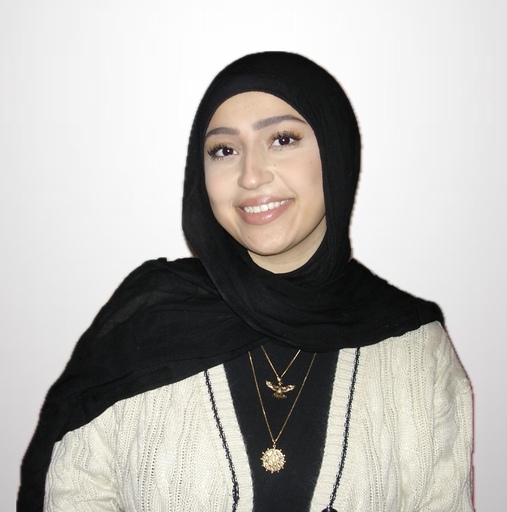
Sarah Abdelaziz | Research Assistant
Sarah joined the MAP Lab in December 2024 as a volunteer. She graduated from Fordham Universitywith a Bachelor’s degree in Integrative Neuroscience and a minor in Bioethics. Her previous work onimproving fMRI neural network analysis to identify cognitive tasks. Sarah was previously in education,working on the administrative side, assisting with the data analysis and project management ofschool-wide assessments. Sarah is on her local Mosque’s youth committee outside the lab, leadinglectures, trips, and retreats. She enjoys going to the gym, painting, reading, traveling, and exploringnew places with her friends and family.
Email: sarah.abdelaziz@mssm.edu

Adam Friedman | Research Assistant
Adam joined MAPlab as a volunteer in June 2025 after graduating from McGill University with a BSc in Computer Science and minor in Cognitive Science. He is passionate about exploring the intersection of neuroscience and AI, especially the potential of machine learning to enable neuroscientific discovery. His previous research involved training language models to investigate theories of language learning and conducting psycholinguistic experiments using electroencephalography (EEG) to study how the adult brain processes grammar. Adam is currently taking a gap year and aspires to begin PhD studies related to his interests. In his free time, Adam enjoys writing, rock climbing, and playing video games.
Email: adam.freidman2@mssm.edu

Jackie Curtin | Volunteer Research Assistant
Jackie joined MAP Lab in May 2024. She is a junior studying Applied Psychology at New York University. She is on the premed track and hopes to pursue an MD with plans to become a psychiatrist. MAP lab will be Jackie’s first experience with research. At MAP lab she will help recruit participants for a study on cue-reactivity in people seeking treatment for Methamphetamine Use Disorder. In her free time, Jackie enjoys playing video games, trying new food, and crafting.
Email: jacqueline.curtin@mssm.edu
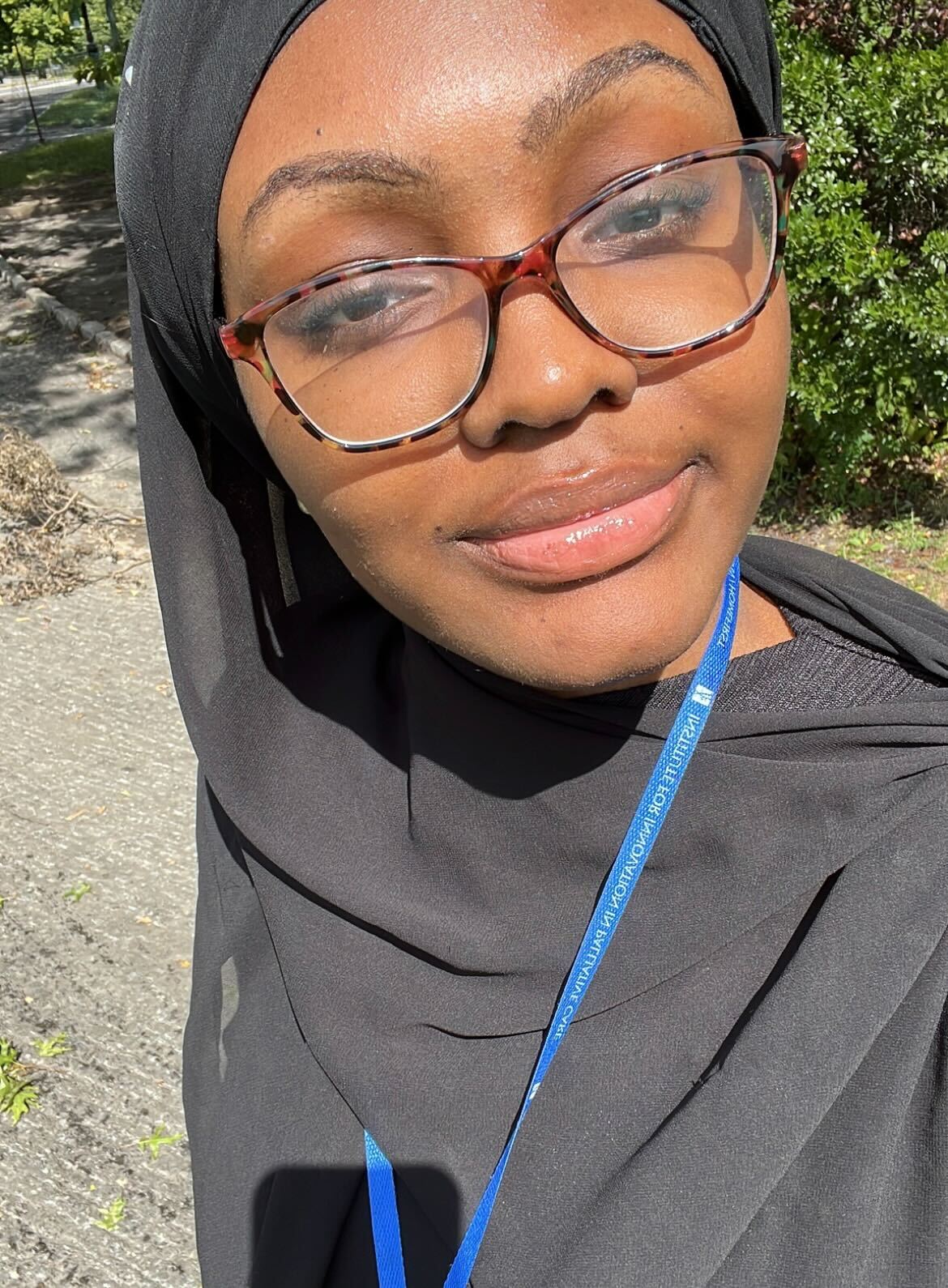
Therese Mbah | Volunteer Research Assistant
Therese is a first-year Biochemistry major at Hunter College under the Yalow Scholars program. She joined the MAP Lab in December 2024 as a clinical research volunteer, where she interviews participants for the ongoing cocaine use disorder and methamphetamine use disorder studies taking place at the lab. Therese is a pre-med student and aspires to become an Obstetrician-Gynecologist after completing medical school. In addition to her research role, she volunteers at a Hospice center and is a mentor for incoming scholars at her college. During her leisure time, Therese enjoys photography, reading, and tennis.
Email: therese.mbah@mssm.edu

Karan Lingineni | Volunteer Research Assistant
Karan is a first-year MS candidate in Mount Sinai’s Clinical Research program and a Research Assistant planning to do his thesis in Parvaz Lab. Additionally, he is currently a Cloud Architect at Kyndryl (previously IBM Global Technology Services). Prior to Mount Sinai, he received BA degrees in Computer Science and Neurobiology from UC Berkeley in 2022. His past career experiences and future research motivations lie in the growing convergence of cloud computing and machine learning with medical informatics, drug discovery, and whole-slide image classification. Karan previously held positions at Roche Pharmaceuticals, developing non-small cell lung cancer (NSCLC) tumor classification CV pipelines, and Amazon, creating Graph Neural Network MVPs for client institutions attempting research in preventing chemotherapeutic side effects based on a patient’s multi-omics data. Karan’s long-term goal is to apply for the upcoming MD/PhD cycle and develop his fundamental medical knowledge further to become a more impactful innovator/researcher within bio-design. Outside of school and work, Karan enjoys playing guitar, listening to classic rock, and keeping up with the NBA season in his free time.
LinkedIn: https://www.linkedin.com/in/kling111/

Armaan Dullat | Volunteer Research Assistant
Armaan joined the MAP Lab as a volunteer in June 2024. He is a sophomore in a BS/MD program with The College of New Jersey and New Jersey Medical School currently pursuing a Bachelor’s of Science in Chemistry. Armaan’s previous research experiences included exploring the specificity of metalloenzymes with alternative substrates and properties not before seen in scientific literature and modeling chemical interactions between various species to better understand the mechanisms of protein tyrosine phosphatases. He is taking a gap year to gain research and tutoring experience, in addition to self-studying languages. Armaan enjoys cooking, hiking, and traveling in his free time.
Email: armaan.dullat@mssm.edu

Zichen Zhao | Volunteer Research Assistant
Zichen Zhao joined the Mount Sinai MAP Lab in October 2025 as a Research Volunteer focusing on AI-driven mental health research. He has completed his M.A. in Quantitative Methods in the Social Sciences (Data Science concentration) at Columbia University, where he also serves as a Research Assistant at the Data Science Institute at Columbia University. Zichen previously earned his B.A. in Psychology and Mathematics from DePauw University.
At Mount Sinai, Zichen’s work centers on the intersection of EEG analysis, artificial intelligence, and behavioral health, exploring how machine learning models can better understand and predict psychological states such as craving and emotional regulation. His broader research integrates computational psychiatry, large language models, and ethical AI for suicide prevention and cognitive assessment. His recent publications and projects include a machine-driven benchmark evaluating the inclusivity and ethical alignment of mental-health chatbots.
Outside the lab, Zichen is Taichi practitioner, Chinese Calligraphy enthusiastic, exploring Chinese medicine like acupuncture, and designing interactive web apps that blend creativity with computation.
Personal Profile Link: https://zhaojackson.github.io/Jackson_3D_Profile/
Personal GitHub Link: https://github.com/ZhaoJackson
Personal LinkedIn Link: https://www.linkedin.com/in/zichenzhao6/

Julia Swiatek | Volunteer Research Assistant
Julia joined the lab as a volunteer in August 2025. She is pursuing an MPhil in Psychiatry at the University of Cambridge, where her thesis will investigate heterogeneity in substance use disorder and seek to identify biomarkers for precision treatments of SUD. She is currently a Technology Analyst with Accenture after graduating from Boston College with a BS in Neuroscience in 2022. At Boston College, Julia was a member of the Cognitive and Affective Neuroscience Lab, where she was involved in research investigating the relationship between socioemotional processing and memory performance in older adults. After completing her MPhil, Julia hopes to progress to a PhD program in Clinical Psychology. Outside of work, Julia enjoys oil painting and reading.

Ayaan Mustafa | Volunteer Research Assistant
Ayaan joined the MAP Lab in September 2025 and is an undergraduate student at New York University majoring in Biomedical Engineering with a minor in Mathematics on the pre-med track. Before joining Mount Sinai, he conducted research at UC Irvine’s Hearing and Speech Lab, where he studied nicotine therapy for age-related hearing disorders using DPOAE, gap detection, and speech recognition testing. Outside of research, Ayaan founded the Heart Beats Biology Program at his local mosque in Chicago, where he leads middle school students through biology lessons, and remains actively involved in community volunteering during his breaks. He plans to pursue an MD after NYU and outside of the lab, Ayaan enjoys fishing, playing basketball, and exploring New York City with friends.
Email: ayaan.mustafa@mssm.edu

Tiana Spence | High School Research Assistant
Tiana Spence is a high school senior and current research intern in the Motivation Pathways Lab at Mount Sinai, where she explores the intersections of mental health and human connection. As a participant in the Lloyd Sherman Biomedical Sciences Enrichment Program, Tiana is passionate about understanding the biological and emotional factors that shape behavior. She plans to major in nursing and eventually work in a behavioral health center supporting at-risk LGBTQ+ teens. Outside the lab, Tiana loves playing video games, spending time with friends, and connecting with people from all walks of life—driven by a genuine curiosity about what makes each person feel seen, understood, and cared for.
ALUMNI
Cristina Bañuelos (MD/PhD Student; Mount Sinai Icahn School of Medicine)
Varshini Balasubramanian (Lab technician; UT Dallas)
Ty Bell (student; Middlebury College)
Kaesha Bowers (mental health counselor)
Jeffrey Chen (MD student; University of Pittsburg School of Medicine)
Ansa Didomenico (student; California Polytechnic State University, San Louis Obispo)
Soubia Hasan (student; New Jersey Institute of Technology)
Haniya Hussainy (student; Rutgers University)
Anam Khan (Clinical Research Coordinator; Massachusetts General Hospital Hardvard Medical School)
Fareedah Lawal (study coordinator; Albert Einstein College of Medicine)
Lauren Lepow (Assistant Professor; Icahn School of Medicine at Mount Sinai)
Pias Malaker (MD/PhD student; University of Missouri School of Medicine)
Priscilla Morales (private practice)
Gopi Neppala (MD student; University of South Carolina School of Medicine-Greenville)
Siddhartha Peri (MD Student; Drexel School of Medicine)
Annabelle Peterson (student)
Azra Rangwala (student; The Cooper Union)
Brittany Tocco (DO student; Rocky Vista University College of Medicine)
Ariella Wagner (MD student; Tufts University School of Medicine)
Collaborators
- Dr. Maheen M. Adamson, PhD (Stanford University)
- Dr. Ashad Alam, PhD (Ochsner Health)
- Dr. Nelly Alia-Klein, PhD (Mount Sinai)
- Dr. Emilia Bagiella, PhD (Mount Sinai)
- Dr. Laura Berner, PhD (Mount Sinai)
- Dr. Srinivasa Chakravarthy, PhD (Indian Institute of Technology, Madras)
- Dr. Cheryl Corcoran, MD (Mount Sinai)
- Dr. Omar El Shahawy, MD (NYU)
- Dr. Vincenzo Fiore, PhD (Mount Sinai)
- Dr. Hugh Garavan, PhD (University of Vermont)
- Dr. Rita Z. Goldstein, PhD (Mount Sinai)
- Dr. Jack Grinband, PhD (Columbia University
- Dr. James Gross, PhD (Stanford University)
- Dr. Manassa Hany, MD (Northwell Health)
- Dr. Muhammad Abul Hasan, PhD (NEDUET, Pakistan)
- Dr. Yasmin L. Hurd, PhD (Mount Sinai)
- Dr. Iliyan Ivanov, MD (Mount Sinai)
- Dr. David Kimhy, PhD (Mount Sinai)
- Dr. Wouter Kool, PhD (Washington University in St. Louis)
- Dr. Edythe London, PhD (UCLA)
- Dr. Scott Moeller, PhD (Stony Brook University)
- Dr. Chirag Patel, PhD (Hardvard Medical School)
- Dr. Saad Qazi, PhD (NEDUET, Pakistan)
- Dr. Rachel Rabin, PhD (McGill University)
- Dr. Adeel Razi, PhD (Monash University, Australia)
- Dr. Eva Velthorst, PhD (GGZ Noord-Holland-Nord)
- Dr. Allison Waters, PhD (Mount Sinai)
Research
Conversational Speech-to-Brain Synchrony in Schizophrenia (Funded by FBI; PI: Parvaz)
Social impairment is a determining feature of schizophrenia (SCZ) that is pervasive and stable throughout the course of illness, even in the absence of active psychotic symptoms. Repetitive display of deviant social behaviors often results in progressive social withdrawal, which is associated with profound negative (mental) health consequences and tremendous societal costs. Critically, social impairment is a complex concept to study because of its multiple components, including impairments in interpersonal functioning, functioning at work and school, and self-care; each may have different determinants and consequences. There is a growing consensus that in order to identify new treatment targets for social impairment, it is essential to concentrate on each domain independently and elucidate their underlying mechanisms. Notably, the assessment of social impairment in SCZ largely relies on rater-based methods. While behavioral observations yield important clinical information, they do not reveal underlying mechanisms that could be targeted with interventions. Here, we focus on neural deficits underlying conversational engagement (CE), a factor that may critically contribute to impairment in interpersonal functioning. The purpose of this study is to use multimodal mobile neuroimaging to mechanistically test whether impaired speech-to-brain synchrony in patients with schizophrenia and clinical high risk for psychosis (CHR) underlies reduced conversational engagement in real-life conversations.
Collaborator: Cheryl Corcoran, MD
CVN058 Effect on Mismatch Negativity in Schizophrenics (Funded by Cerevance Alpha Inc.; PI: Parvaz)
Schizophrenia is a complex disorder comprising several clinical features that are highly variable among affected individuals. Based on emerging insight into disease pathophysiology, a therapeutic that restores the normal function of the cortical pyramidal neuron/FSI microcircuit would be expected to improve cognitive function in patients with schizophrenia. CVN058 is a novel therapeutic candidate being developed by Cerevance for the treatment of cognitive impairment associated with schizophrenia. Nonclinical studies have suggested that CVN058 can improve cognitive function by inhibiting specific subsets of cortical interneurons. This is a phase 2, double-blind, placebo-controlled, 3 period crossover study to evaluate CVN058 target engagement and proof of mechanism by measuring auditory evoked potential mismatch negativity (MMN) as a pharmacodynamic (PD) marker of the CNS response.
Collaborator: Cheryl Corcoran, MD
Effects of Prenatal Drug Exposure on Cognitive Functioning and Underlying Neurobiology (ABCD Data)
This project entails analyses of data collected by the ABCD study. The goal is to assess the effects of family history and prenatal exposure to drugs on the brain functioning in drug-naive youth using computational and neuroimaging markers. Three groups of participants will be identified: children with positive family hx of SUD (first degree relative) without exposure to drugs during pregnancy (FH+ PregExp-); children with positive family hx of SUD plus exposure to drugs during pregnancy (FH+ PregExp+); children with no family hx of SUD (controls). All participants will have no personal hx of drug use including no prior treatment with stimulants for ADHD. We plan to access demographics, behavioral and questionnaire data, as well as structural and functional neuroimaging data to comprehensively delineate the effects of prenatal drug exposure of motivational and affective processing in children.
Collaborator: Iliyan Ivanov, MD
Participate in Our Studies
You (or your child) can participate in one of the following studies, if you fulfill the inclusion criteria
Brain Function Assessment using fNIRS Technology Study
Inclusion Criteria
- Ages 30 to 60 years
- No history of brain trauma/loss of consciousness
- No history or diagnosis of any major psychiatric disorders or developmental disorders
Conversational Schizophrenia/Schizoaffective Study
Inclusion Criteria
- Ages 18 to 50 years
- Diagnosis of schizophrenia or schizoaffective disorder
- Stable dose of meds for > 2 months
If you think you qualify, please contact us for screening and recruitment at
Phone: 909-566-2345, or
Email: MAPlab@mssm.edu
You will be compensated for your participation and your confidentiality will be strictly maintained.
Publications
2024
Neurofeedback during Eating: A Potential Novel and Mechanistic Treatment for Bulimia Nervosa
Full text link: (https://wap.hapres.com/htmls/JPBS_1664_Detail.html)
Methamphetamine‐related working memory difficulties underpinned by reduced frontoparietal responses
Full text link: (https://onlinelibrary.wiley.com/doi/full/10.1111/adb.13444)
Longitudinal tracking of alcohol expectancies and their associations with impulsivity in alcohol
naïve youth in the adolescent brain cognitive development (ABCD) study
Full text link: (https://www.sciencedirect.com/science/article/pii/S2772724624000556)
Dynamic alterations in gene co-expression networks and gene-transcript associations
characterize co-morbidities in cocaine use disorder
Full text link: (https://www.biorxiv.org/content/10.1101/2024.07.10.602908v1.full)
Independent and Interactive Impacts of Prenatal Exposure to Legal Substances and Childhood
Trauma on Emotion Processing in Pre-Adolescents: Preliminary Findings From the ABCD Study
Full text link: (https://www.jaacapopen.org/article/S2949-7329(24)00048-6/fulltext)
Effectiveness of Emotion-Regulation Interventions on Substance Misuse and Emotion
Regulation Outcomes in Individuals with Substance Dependence: A Systematic Review and
Meta-Analysis
Full text link: (https://link.springer.com/article/10.1007/s40429-024-00582-y)
Robust identification of a neuromarker of methamphetamine craving
Full text link: (https://www.cell.com/action/showPdf?pii=S2666-3791%2824%2900050-8)
Effects of Stimulant Treatment on Changes in Brain Activation During Reward Notifications in
Drug Naïve Youth With ADHD
Full text link: (https://journals.sagepub.com/doi/full/10.1177/10870547231219762)
2023
Altered prefrontal signaling during inhibitory control in a salient drug context in cocaine use disorder.
Full text link: (https://www.sciencedirect.com/science/article/pii/S0920996422000299)
Whole-brain resting-state connectivity underlying impaired inhibitory control during early versus longer-term abstinence in cocaine addiction.
Full text link: (https://www.nature.com/articles/s41380-023-02199-5)
2022
Construct validity for computational linguistic metrics in individuals at clinical risk for psychosis: Associations with clinical ratings.
Full text link: (https://www.sciencedirect.com/science/article/pii/S0920996422000299)
A Meta-Analysis of fMRI Studies of Youth Cannabis Use: Alterations in Executive Control, Social Cognition/Emotion Processing, and Reward Processing in Cannabis Using Youth.
Full text link: (https://www.mdpi.com/2076-3425/12/10/1281/pdf)
A scoping review of electroencephalographic (EEG) markers for tracking neurophysiological changes and predicting outcomes in substance use disorder treatment.
Full text link: (https://rb.gy/gos1e)
Computational models of behavioral addictions: state of the art and future directions.
Full text link: (https://boa.unimib.it/bitstream/10281/402899/2/Kato-2023-Addictive%20Bahaviors-preprint.pdf)
Effects of transcranial direct current stimulation (tDCS) on attentional bias to methamphetamine cues and its association with EEG-derived functional brain network topology.
Full text link: (https://academic.oup.com/ijnp/advance-article/doi/10.1093/ijnp/pyac018/6563479?login=true)
Social Isolation-Mediated Exacerbation of Negative Affect in Young Drinkers during the COVID-19 Pandemic. Full text link: (https://www.ncbi.nlm.nih.gov/pmc/articles/PMC8870361/pdf/brainsci-12-00214.pdf)
Emotion Dysregulation and Opioid Misuse.
Full text link: (https://www.sciencedirect.com/science/article/pii/S000632232201201X?via%3Dihub)
Structural and functional brain recovery in individuals with substance use disorders during abstinence: A review of longitudinal neuroimaging studies.
Full text link: (https://www.sciencedirect.com/science/article/pii/S0376871622000564?via%3Dihub)
Emotion recognition in individuals with cocaine use disorder: the role of abstinence length and the social brain network.
Full text link: (https://www.ncbi.nlm.nih.gov/pmc/articles/PMC8689230/)
Sleep Disturbance in Individuals at Clinical High Risk for Psychosis.
Full text link: (https://academic.oup.com/schizophreniabulletin/article/48/1/111/6372185?login=true)
2021
A double-blind sham-controlled phase 1 clinical trial of tDCS of the dorsolateral prefrontal cortex in cocaine inpatients: Craving, sleepiness, and contemplation to change.
Full text link: (https://www.ncbi.nlm.nih.gov/pmc/articles/PMC8089045/)
Attention bias modification in drug addiction: Enhancing control of subsequent habits.
Full text link: (https://www.ncbi.nlm.nih.gov/pmc/articles/PMC8201879/)
Enhancement of aerobic fitness improves social functioning in individuals with schizophrenia.
Full text link: (https://rb.gy/ogf3y)
Exacerbated Worsening of Negative Mood in Underage Drinkers During the COVID-19 Pandemic.
Full text link: (https://www.sciencedirect.com/science/article/pii/S0006322321009288?via%3Dihub)
Impaired Arbitration Between Decision-Making Strategies in Alcohol and Cannabis Users: A Preliminary Computational Modeling Study.
Full text link: (https://www.sciencedirect.com/science/article/abs/pii/S0006322321004364?via%3Dihub)
Auditory Mismatch Negativity in Clinical High Risk for Psychosis and Schizophrenia, and Association With Symptoms and Cognition.
Full text link: (https://www.sciencedirect.com/science/article/abs/pii/S0006322321005217?via%3Dihub)
Prenatal Drug Exposure Potentiates the Effect of Childhood Trauma on Emotion Reactivity in an ABCD Sample.
Full text link: (https://www.sciencedirect.com/science/article/abs/pii/S0006322321005072?via%3Dihub)
2020
Brain Injury and Dementia in Pakistan: Current Perspectives.
Full text link: (https://www.frontiersin.org/articles/10.3389/fneur.2020.00299/full)
Self-awareness of problematic drug use: Preliminary validation of a new fMRI task to assess underlying neurocircuitry.
Full text link: (https://www.sciencedirect.com/science/article/abs/pii/S0376871620300958?via%3Dihub)
Common and gender-specific associations with cocaine use on gray matter volume: Data from the ENIGMA addiction working group.
Full text link: (https://onlinelibrary.wiley.com/doi/epdf/10.1002/hbm.25141)
Substance Use Initiation, Particularly Alcohol, in Drug-Naive Adolescents: Possible Predictors and Consequences From a Large Cohort Naturalistic Study.
Full text link: (https://www.sciencedirect.com/science/article/abs/pii/S0890856720319511?via%3Dihub)
Patterns of Mismatch Negativity Deficits in Individuals at Clinical High Risk for Psychosis and Association with Symptoms.
Full text link: (https://www.biologicalpsychiatryjournal.com/article/S0006-3223(20)30653-3/fulltext)
Neuroimaging the Effects of Drug-Related Cue-Reactivity on Inhibitory Control in Cocaine Use Disorder.
Full text link: (https://www.biologicalpsychiatryjournal.com/article/S0006-3223(20)30921-5/fulltext)
2019
Neural mechanisms of extinguishing drug and pleasant cue associations in human addiction: role of the VMPFC.
Full text link: (https://onlinelibrary.wiley.com/doi/pdf/10.1111/adb.12545)
Speech markers for clinical assessment of cocaine users.
Full text link: (https://www.ncbi.nlm.nih.gov/pmc/articles/PMC7039659/)
2018
Habenula-prefrontal resting-state connectivity in reactive aggressive men – A pilot study.
Full text link: (https://www.ncbi.nlm.nih.gov/pmc/articles/PMC6478575/)
Reward-Based Learning as a Function of Severity of Substance Abuse Risk in Drug-Naïve Youth with ADHD.
Full text link: (https://www.liebertpub.com/doi/pdf/10.1089/cap.2018.0010)
Neural Correlates of Drug-Biased Choice in Currently Using and Abstinent Individuals With Cocaine Use Disorder.
Full text link: (https://www.ncbi.nlm.nih.gov/pmc/articles/PMC5944613/pdf/nihms919620.pdf)
Trait anger modulates neural activity in the fronto-parietal attention network.
Full text link: (https://www.ncbi.nlm.nih.gov/pmc/articles/PMC5908080/pdf/pone.0194444.pdf)
Reduced Orbitofrontal Gray Matter Concentration as a Marker of Premorbid Childhood Trauma in Cocaine Use Disorder.
Full text link: (https://www.ncbi.nlm.nih.gov/pmc/articles/PMC5818418/pdf/fnhum-12-00051.pdf)
2017
Prefrontal gray matter volume recovery in treatment-seeking cocaine-addicted individuals: a longitudinal study.
Full text link: (https://www.ncbi.nlm.nih.gov/pmc/articles/PMC5085900/pdf/nihms-770789.pdf)
Neuroimaging cognitive reappraisal in clinical populations to define neural targets for enhancing emotion regulation. A systematic review.
Full text link: (https://www.ncbi.nlm.nih.gov/pmc/articles/PMC5145785/pdf/nihms-797358.pdf)
Abstinence reverses EEG-indexed attention bias between drug-related and pleasant stimuli in cocaine-addicted individuals.
Full text link: (https://www.ncbi.nlm.nih.gov/pmc/articles/PMC5373704/pdf/jpn-42-78.pdf)
Prediction of subjective ratings of emotional pictures by EEG features.
Full text link: (https://www.ncbi.nlm.nih.gov/pmc/articles/PMC5476954/pdf/nihms864144.pdf)
The adolescent brain at risk for substance use disorders: a review of functional MRI research on motor response inhibition.
Full text link: (https://www.ncbi.nlm.nih.gov/pmc/articles/PMC5575930/pdf/nihms842903.pdf)
Neural mechanisms of extinguishing drug and pleasant cue associations in human addiction: role of the VMPFC.
Full text link: (https://onlinelibrary.wiley.com/doi/pdf/10.1111/adb.12545)
2016
Incubation of Cue-Induced Craving in Adults Addicted to Cocaine Measured by Electroencephalography.
Full text link: (https://www.ncbi.nlm.nih.gov/pmc/articles/PMC5206796/pdf/nihms836953.pdf)
Reward vs. Retaliation-the Role of the Mesocorticolimbic Salience Network in Human Reactive Aggression.
Full text link: (https://www.ncbi.nlm.nih.gov/pmc/articles/PMC5037197/pdf/fnbeh-10-00179.pdf)
Abstinence reverses EEG-indexed attention bias between drug-related and pleasant stimuli in cocaine-addicted individuals.
Full text link: (https://www.ncbi.nlm.nih.gov/pubmed/27434467/)
Objective and specific tracking of anhedonia via event-related potentials in individuals with cocaine use disorders.
Full text link: (https://www.ncbi.nlm.nih.gov/pmc/articles/PMC4893885/pdf/nihms787328.pdf)
Abnormal response to methylphenidate across multiple fMRI procedures in cocaine use disorder: feasibility study.
Full text link: (https://www.ncbi.nlm.nih.gov/pmc/articles/PMC4916842/pdf/nihms792541.pdf)
Metacognitive impairment in active cocaine use disorder is associated with individual differences in brain structure.
Full text link: (https://www.ncbi.nlm.nih.gov/pmc/articles/PMC4805109/pdf/nihms765541.pdf)
Converging effects of cocaine addiction and sex on neural responses to monetary rewards.
Full text link: (https://www.ncbi.nlm.nih.gov/pmc/articles/PMC4752897/pdf/nihms753729.pdf)
2015
Full text link: (https://www.ncbi.nlm.nih.gov/pmc/articles/PMC5206794/pdf/nihms836904.pdf)
Effects of an opioid (proenkephalin) polymorphism on neural response to errors in health and cocaine use disorder.
Full text link: (https://www.ncbi.nlm.nih.gov/pmc/articles/PMC4567394/pdf/nihms711482.pdf)
Impaired neural response to negative prediction errors in cocaine addiction.
Full text link: (https://www.ncbi.nlm.nih.gov/pmc/articles/PMC4315825/pdf/zns1872.pdf)
2014 and Earlier
Full text link: (https://www.ncbi.nlm.nih.gov/pmc/articles/PMC4994842/pdf/nsu027.pdf)
Common and distinct neural correlates of inhibitory dysregulation: stroop fMRI study of cocaine addiction and intermittent explosive disorder.
Full text link: (https://www.ncbi.nlm.nih.gov/pmc/articles/PMC4163519/pdf/nihms619847.pdf)
Reactions to media violence: it’s in the brain of the beholder.
Full text link: (https://www.ncbi.nlm.nih.gov/pmc/articles/PMC4160225/pdf/pone.0107260.pdf)
Monoamine polygenic liability in health and cocaine dependence: imaging genetics study of aversive processing and associations with depression symptomatology.
Full text link: (https://www.ncbi.nlm.nih.gov/pmc/articles/PMC4053494/pdf/nihms-591702.pdf)
Multimodal evidence of regional midcingulate gray matter volume underlying conflict monitoring.
Full text link: (https://www.ncbi.nlm.nih.gov/pmc/articles/PMC4050316/pdf/main.pdf)
Methylphenidate enhances executive function and optimizes prefrontal function in both health and cocaine addiction.
Full text link: (https://www.ncbi.nlm.nih.gov/pmc/articles/PMC3920764/pdf/bhs345.pdf)
Functional, structural, and emotional correlates of impaired insight in cocaine addiction.
Full text link: (https://www.ncbi.nlm.nih.gov/pmc/articles/PMC4193926/pdf/nihms551630.pdf)
Gene x abstinence effects on drug cue reactivity in addiction: multimodal evidence.
Full text link: (https://www.ncbi.nlm.nih.gov/pmc/articles/PMC3682385/pdf/zns10027.pdf)
Event-related induced frontal alpha as a marker of lateral prefrontal cortex activation during cognitive reappraisal.
Full text link: (https://www.ncbi.nlm.nih.gov/pmc/articles/PMC3494774/pdf/nihms-391852.pdf)
Psychophysiological prediction of choice: relevance to insight and drug addiction.
Full text link: (https://www.ncbi.nlm.nih.gov/pmc/articles/PMC3501972/pdf/aws252.pdf)
Structural and behavioral correlates of abnormal encoding of money value in the sensorimotor striatum in cocaine addiction.
Full text link: (https://www.ncbi.nlm.nih.gov/pmc/articles/PMC3463641/pdf/nihms-386132.pdf)
Sensitivity to monetary reward is most severely compromised in recently abstaining cocaine addicted individuals: a cross-sectional ERP study.
Full text link: (https://www.ncbi.nlm.nih.gov/pmc/articles/PMC3444645/pdf/nihms361425.pdf)
Structural integrity of the prefrontal cortex modulates electrocortical sensitivity to reward.
Full text link: (https://www.ncbi.nlm.nih.gov/pmc/articles/PMC4353578/pdf/nihms667148.pdf)
Neuroimaging for drug addiction and related behaviors.
Full text link: (https://www.ncbi.nlm.nih.gov/pmc/articles/PMC3462350/pdf/nihms-408808.pdf)
Motivated attention to cocaine and emotional cues in abstinent and current cocaine users–an ERP study.
Full text link: (https://www.ncbi.nlm.nih.gov/pmc/articles/PMC3086977/pdf/nihms276564.pdf)
Gene x disease interaction on orbitofrontal gray matter in cocaine addiction.
Full text link: (https://www.ncbi.nlm.nih.gov/pmc/articles/PMC3127452/pdf/nihms-303849.pdf)
Impaired insight in cocaine addiction: laboratory evidence and effects on cocaine-seeking behaviour.
Full text link: (https://www.ncbi.nlm.nih.gov/pmc/articles/PMC2912695/pdf/awq066.pdf)
Enhanced choice for viewing cocaine pictures in cocaine addiction.
Full text link: (https://www.ncbi.nlm.nih.gov/pmc/articles/PMC2742172/pdf/nihms100331.pdf)
Compromised sensitivity to monetary reward in current cocaine users: an ERP study.
Full text link: (https://www.ncbi.nlm.nih.gov/pmc/articles/PMC2574641/pdf/nihms51964.pdfP)
Beware misleading cues: perceptual similarity modulates the N2/P3 complex.
Full text link: (https://onlinelibrary.wiley.com/doi/pdf/10.1111/j.1469-8986.2006.00409.x)
Time course of processes underlying picture and word evaluation: an event-related potential approach.
Full text link: (https://link.springer.com/content/pdf/10.1007%2Fs10548-006-0270-9.pdf)
News & Updates
- 12/01/2025: Muhammad attended a Neuroscience Retreat!
- 10/20/2025: Muhammad attended ACAP Conference!
- 09/16/2025: Muhammad attended EBPS Conference!
- 08/18/2025: Muhammad attended Gordon Research Conference on Cannabinoid Neurobiology in Waterville Valley, NH!
- 07/28/2025: Muhammad attended SUD Sprint Conference!
- 07/15/2025: Muhammad, Karmiella, and Adam attended BBQS Hackathon Conference in Boston, MA!
- 06/16/2025: Muhammad attended CPDD Conference!
- 03/11/2025: MAP Lab attended Mount Sinai’s Annual Brain Fair!
- 12/08/2024: Muhammad visted ACNP Conference!
- 05/07/2024: Muhammad presented at the American Psychological Association Convention in NYC!
- 04/19/2024: MAP Lab presented at the Friedman Brain Institute 16th Annual Neuroscience Retreat in NYC!
- 03/04/2024: MAP Lab attended AIIM Conference in Maryland!
- 02/05/2024: MAP Lab has been selected to present at Brain Fair at Mount Sinai!
- 01/22/2024: Faith attended and presented at the Exposome Conference!
- 12/03/2023: Muhammad and Faith attended the 62nd Annual American College of Neuropsychopharmacology Conference in Tampa, Florida!
- 11/11/2023: Map Lab attended the Society for Neuroscience 2023 Conference in Washington, D.C.!
- 10/23/2023: Muhammad, Ananth, and Faith attended AACAP Conference in NYC!
- 09/19/2023: Map Lab was awarded the R61 grant for methamphetamine cue-reactivity!
- 08/21/2023: Muhammad attended EBPS Conference in Germany!
- 08/18/2023: Faith received an F31 Grant from the National Institute on Alcohol Abuse and Alcoholism!
- 06/23/2023: Brittany won an Excellence in Leadership and Service Award in the Clinical Research Education Program!
- 06/20/2023: Faith attended and presented at CPDD Conference!
- 06/14/2023: Faith attended the NEURAL Conference in at the University of Alabama at Birmingham and won Best Poster Presentation!
- 06/2023: Muhammad attended an NIH Conference!
- 05/2023: Muhammad spoke at NIH Conference and the 15th Annual Neuroscience Retreat! Siddhartha and Tarik presented their posters at the 15th Annual Neuroscience Retreat as well!
- 04/2023: Muhammad spoke at the BCI & Neurotechnology Spring School 2023 Conference!
- 03/2023: Muhammad spoke at the 11th Annual Brain Fair at Mount Sinai!
- 01/2023: Muhammad will be attending the Winter Conference on Brain Research!
- 12/2022: Muhammad visited and presented at the ACMP Conference
- 10/2022: Muhammad visited and presented at the American Academy of Child and Adolescent Psychiatry Conference
- 09/2022: Faith Adams attended and presented at Flux Conference in Paris, France. Muhammad visited and presented at ASAM Conference
- 08/2022: Muhammad visited and presented at GRC Conference
- 07/2022: Faith Adams and Anatha Ramakrishnan their posters at CPC++ Conference
- 06/2022: Muhammad visited and presented at CPDD Conference
- 03/2022: Karmiella joined the MAPlab as a fulltime Clinical Research Coordinator. Welcome Karmiella!
- 12/2019: Muhammad co-chaired a Study Group on “ABCD Data Use: Challenges and Opportunities for Prospective and Current ABCD Data Users” at the ACNP meeting, in Orlando FL.
- 10/22/2019: Muhammad will present a talk on “Longitudinal assessments of incubation of cue-induced drug craving in cocaine-addicted individuals” in a Nanosymposium at SfN 2019, Chicago IL.
- 10/16/2019: Muhammad co-chaired a Symposium on “New Technologies to Gain Insights into Adolescent Substance Use Disorders,” at the AACAP meeting 2019, in Chicago IL.
- 07/26/2019: A paper that Lauren co-authored has been published in Biological Psychiatry.
- 07/15/2019: Dr. Lauren Lepow joined MAPlab (co-mentored by Dr. Rachel Yahuda) as a Neuroscience PhD student. Welcome Lauren!
- 07/08/2019: Soubia Hasan and Azra Rangwala joined MAPlab as volunteer research assistant and high-school summer research intern, respectively. Welcome Soubia and Azra!
- 07/01/2019: Ariella Wagner joined the MAPlab as a fulltime Clinical Research Coordinator. Welcome Ariella!
- 05/20/2019: Ariella Wagner graduated with Masters in Clinical Research.
- 04/2019: Anatha Ramakrishnan presented and moderated at the Bio-IT World Conference
- 11/01/2018: Dr. Riaz B. Shaik joined MAPlab (co-mentored by Dr. Cheryl Corcoran) as a postdoctoral fellow. Welcome Riaz!
- 10/15/2018: Haniya Husainy joined MAPlab as a volunteer research assistant. Welcome Haniya!
- 10/04/2018: Our paper on reward learning in adolescents was published in the Journal of Child & Adolescent Psychopharmacology.
- 09/2018: A paper that Muhammad co-authored was published in Neuropharmacology.
- 07/01/2018: Parvaz Lab is open for business!
Motivational and Affective Psychopathologies Lab
1255 Fifth Avenue
Phone: 909.566.2345
Email: MAPlab@mssm.edu
